2024 AAG Awards Recognition

AAG members are recognized for their work throughout the year and for their dedication to the discipline. Of the hundreds of nominations received, AAG committees, groups and leadership choose exemplary members who contribute to the field of geography in many different ways and celebrate their role in advancing geography. Following is a compilation of all of AAG’s awards conferred in 2024.
AAG Honors
AAG Honors are offered annually to recognize outstanding accomplishments by members in research and scholarship, teaching, education, service to the discipline, public service outside academe and for lifetime achievement.
AAG Distinguished Scholarship Honors
Jennifer Collins
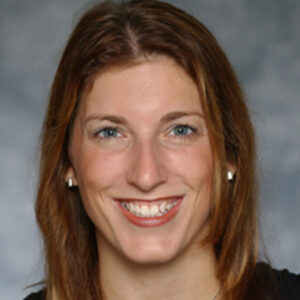 The 2024 AAG Distinguished Scholarship Honor is awarded to Jennifer Collins for her research in physical climatology and human geography, most notably for her studies of hurricanes, hurricane risk, and hurricane evacuation behavior. Her research has substantially advanced knowledge of hurricanes and tropical storms and led to improvements in forecasting. She is highly regarded for her analyses of the combined contributions of El Nino and the Madden-Julian Oscillation to the 2009 hurricane season in the eastern North Pacific, and of the environmental conditions affecting the record-breaking 2015 Pacific hurricane season. Collins and her co-authors also transformed the known history of Atlantic hurricanes by finding that the 1846 Great Havana Hurricane was the first known Category 5 hurricane to make landfall there.
The 2024 AAG Distinguished Scholarship Honor is awarded to Jennifer Collins for her research in physical climatology and human geography, most notably for her studies of hurricanes, hurricane risk, and hurricane evacuation behavior. Her research has substantially advanced knowledge of hurricanes and tropical storms and led to improvements in forecasting. She is highly regarded for her analyses of the combined contributions of El Nino and the Madden-Julian Oscillation to the 2009 hurricane season in the eastern North Pacific, and of the environmental conditions affecting the record-breaking 2015 Pacific hurricane season. Collins and her co-authors also transformed the known history of Atlantic hurricanes by finding that the 1846 Great Havana Hurricane was the first known Category 5 hurricane to make landfall there.
Collins’ research on hurricane evacuation has expanded community awareness and preparedness and been recognized for ultimately saving lives. Her 2020 survey, disseminated to Florida residents in English and Spanish through media, regional planning councils, and emergency management, documented fears and perceived risks of more than 7,000 respondents about the possibility of evacuation and shelter during the COVID-19 pandemic. In earlier research, immediately after Hurricane Irma in Florida, Collins and co-authors, including students, showed the significant roles played by the density and diversity of social networks in decisions to evacuate or not. Collins has paid special attention to vulnerable populations in her research and is commended for the diversity of her student research groups. She currently holds a NOAA grant to study tornado risk perception.
Dr. Collins is highly respected by scientific peers and practitioners. In numerous invited talks and media interviews, as first author of the 2017 book, Florida Weather and Climate: More than Just Sunshine, and as co-editor of the books, Hurricane Risk (2017), Hurricanes and Climate Change (2018), and Hurricane Risk in a Changing Climate (2022), she has conveyed scientific results to public audiences and decision makers. She has been interviewed and/or quoted by scores of national and local media, including major U.S. television networks, the BBC, National Public Radio, The New York Times, and The Washington Post.
The high quality and insightful results of her published research have garnered high national and international regard. Dr. Collins has received two Outstanding Research Achievement Awards at the University of South Florida, her home institution, and she is a Fellow of the AAG, the American Association for the Advancement of Science (AAAS), and the American Meteorological Society (AMS). Collins’ research addresses timely, urgent questions that have important impacts in the scientific community and for the public.
AAG Distinguished Teaching Honors
Patricia Lopez
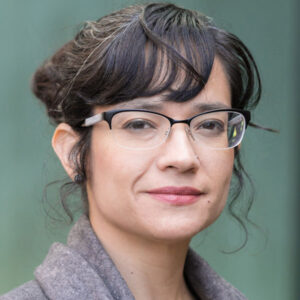 The 2024 AAG Distinguished Teaching Honors is awarded to Patricia Lopez for her teaching, mentoring and pedagogical accomplishments at Dartmouth College. As Chris Sneddon, former Chair of Geography at Dartmouth College states, “Dr. Lopez is the most extraordinary teacher and mentor in higher education I have yet to encounter.” In her early career work at Dartmouth, she developed and taught eight courses, as well as engaged in high stress and deeply important work, such as teach-ins that responded to political crises that affected campuses and the US. Even in the most isolating times at the beginning of the COVID- 19 pandemic, Professor Lopez demonstrated pedagogy that taught students to value collaboration as central to knowledge production and to embrace multiple modes of learning across audio, visual and written media. Her courses span the breadth of student lea ming from leading introductory courses to teaching Global Poverty & Care, Geopolitics of Humanitarianism and co-teaching a class on #BlacklivesMatter. This is because her work centers on bringing care into labor, life, teaching, and mentoring.
The 2024 AAG Distinguished Teaching Honors is awarded to Patricia Lopez for her teaching, mentoring and pedagogical accomplishments at Dartmouth College. As Chris Sneddon, former Chair of Geography at Dartmouth College states, “Dr. Lopez is the most extraordinary teacher and mentor in higher education I have yet to encounter.” In her early career work at Dartmouth, she developed and taught eight courses, as well as engaged in high stress and deeply important work, such as teach-ins that responded to political crises that affected campuses and the US. Even in the most isolating times at the beginning of the COVID- 19 pandemic, Professor Lopez demonstrated pedagogy that taught students to value collaboration as central to knowledge production and to embrace multiple modes of learning across audio, visual and written media. Her courses span the breadth of student lea ming from leading introductory courses to teaching Global Poverty & Care, Geopolitics of Humanitarianism and co-teaching a class on #BlacklivesMatter. This is because her work centers on bringing care into labor, life, teaching, and mentoring.
In 2017, 2019, and 2021, Dartmouth College named Dr. Lopez as one of their “Top 20 Professors” in the yearbook The Aegis, a rare accomplishment for a junior faculty member. She has similarly been awarded Dartmouth’s Class of 1962 Teaching Fellowship and a Classroom Enhancement Grant through the Nelson A. Rockefeller Center. Professor Lopez inspires and collaborates with undergraduate students to build from introductory courses towards self directed research projects, including the intensive mentoring process that is required for applications for intramural Dartmouth funding, the Mellon Mays program, and the National Science Foundation Graduate Research Fellowship. Lizet Garcfa, who identifies as a first generation low-income student, shared that Dr. Lopez both “often challenges me” and “her support and belief help me power through it all” – including the undergraduate thesis at Dartmouth College, a successful NSF GRF application, and admission to all PhD programs applied to. Beyond the work of developing stellar courses and community-based experiences, Professor Lopez has encouraged her students to understand themselves as teacher-scholars and to act accordingly in terms of developing theory and engaging in accountable geographies.
Dr. Lopez’s engaged and rigorous mentorship has borne fruit throughout the discipline of geography, and beyond. She has served as a mentor for four Mellon Mays Undergraduate Fellowship recipients who are underrepresented in geography; three have gone on to PhD programs and a fourth was a finalist for the Rhodes scholarship. Less than ten years after filing her PhD, Lopez is clearly shaping the future of geography as a discipline. Graduate Mariana Penaloza Morales describes her as a “North Star” in guiding their path towards excellence in research, teaching, and service.
AAG Gilbert Grosvenor Honors for Geographic Education
Rafael de Miguel Gonzalez
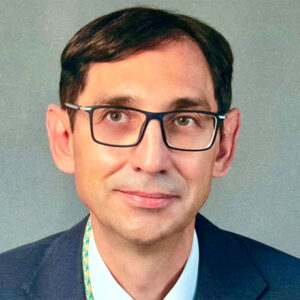 The 2024 Gilbert Grosvenor Honors for Geographic Education is awarded to Dr. Rafael de Miguel Gonzalez for his exceptional service to the discipline of geography and unique contributions to the geographic education community. Currently the President of EUROGEO (the European Association of Geographers) and Professor of Geography Education at the University of Zaragoza (Spain), De Miguel is one of the preeminent scholars of geography education in the world today. De Miguel is recognized as one of geography’s key public advocates of national and international educational reform and innovation, through his work for about 30 years as a geography school teacher, later university professor, lead researcher, project manager, editor, writer, map-maker, higher education administrator, speaker and -as Board member of several geographical institutions- representative of the community of geographers and geography educators in front of national education policy makers and international organizations like the UN, the European Commission or the Council of Europe.
The 2024 Gilbert Grosvenor Honors for Geographic Education is awarded to Dr. Rafael de Miguel Gonzalez for his exceptional service to the discipline of geography and unique contributions to the geographic education community. Currently the President of EUROGEO (the European Association of Geographers) and Professor of Geography Education at the University of Zaragoza (Spain), De Miguel is one of the preeminent scholars of geography education in the world today. De Miguel is recognized as one of geography’s key public advocates of national and international educational reform and innovation, through his work for about 30 years as a geography school teacher, later university professor, lead researcher, project manager, editor, writer, map-maker, higher education administrator, speaker and -as Board member of several geographical institutions- representative of the community of geographers and geography educators in front of national education policy makers and international organizations like the UN, the European Commission or the Council of Europe.
He provides initial and in-service geography teacher training for more than 100 students per academic year at Bachelor, Master and PhD levels. He has been the Principal Investigator of 32 research and innovation projects on geography education, most of them funded by the European Commission, but also by Esri, or sponsored by the Spanish National Science Foundation. In addition to providing pre-service training and professional development for geography teachers in Europe and in Spanish language worldwide, his contributions to geography education include developing instructional materials for teaching geography based on cutting-edge geospatial technologies and creating accessible pathways to resources for geography teachers. Two notable outputs are the Digital Atlas for Schools and the geography textbooks for secondary education. De Miguel has widely published articles on geography education in prominent geography journals, served as author and editor for the Book Series Key Challenges in Geography and the International Research in Geographical and Environmental Education, among numerous significant book contributions. Among several awards and honors, Professor de Miguel was elected a member of the Academia Europaea. His remarkable influence on contemporary geography draws upon his theoretical framework of geographical competences for lifelong learning, as well as his determination for geographical practices in sustainable development, global understanding, and smart citizenship, and ongoing contributions to creating bridges between geography educators from different continents and sharing innovative ideas on geography education on local, national, and international forums.
Lifetime Achievement Honors
Cindi Katz
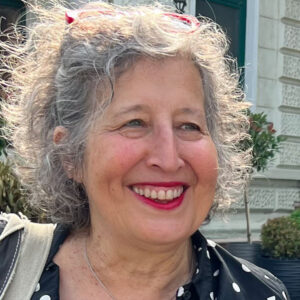 The 2024 AAG Lifetime Achievement Honor is awarded to Cindi Katz for her enduring scholarly contributions to feminist scholarship and social theory, and the subfields of cultural, social, and economic geography and political economy; as well as shedding light on the political-ecological conditions that affect the lives of children. Dr. Katz has contributed to diversifying the field through her mentorship of women and scholars of color.
The 2024 AAG Lifetime Achievement Honor is awarded to Cindi Katz for her enduring scholarly contributions to feminist scholarship and social theory, and the subfields of cultural, social, and economic geography and political economy; as well as shedding light on the political-ecological conditions that affect the lives of children. Dr. Katz has contributed to diversifying the field through her mentorship of women and scholars of color.
In a career spanning four decades, Katz has authored and edited six influential books, published over 75 articles, delivered over 65 invited keynotes and plenary lectures, and trained more than 40 graduate students. Katz has served on the editorial boards of many major journals in geography and related disciplines, including associate editor of the Annals of the AAG and editor of Children Environment Quarterly. Katz has held several leadership positions at the City University of New York Graduate Center, where she has spent her career, and at the Dartmouth Institute on the Futures of American Studies. She has held fellowships and visiting professorships at Khartoum University, Helsinki University of Technology, Harvard, and Cambridge. Her colleagues have described her as dedicated, influential, inspirational, brilliant, humorous, generous, innovative, and inclusive.
Katz’s work has been at the intersections of race, gender, age, and class for her entire career. She has studied these intersections in a global frame, drawing connections, for instance, between the lives of children in Sudan and New York City. In her widely cited and agenda-setting book, Growing Up Global: Economic Restructuring and Children’s Everyday Lives (@1900 citations, Google Scholar), Katz revealed the disruptions in children’s lives in the village of Howa, Sudan and in New York City, as the local economy was brought into capitalist agricultural relations of production and reproduction associated with processes of ‘development’ in the 1970s. Katz showed that the globalization of capital is not just about trade agreements, negotiations of the IMF, and the movements of financial capital; but importantly, the ways these processes bear down on the lives of children, in their education, work, and play. As these developments in Howa were underway, restructuring was also felt in New York City, with the loss of its manufacturing base, and this recalibrated and destabilized children’s lives and life chances. Katz documented the punishing effects of restructuring, including unemployment, poverty, reductions in the social wage, stunted educational opportunities, growing criminalization of young people, and increasing inequality; drawing ‘contour lines’ between these disparate settings to illuminate the translocal effects of economic restructuring.
Whether in New York City, Howa, Detroit or elsewhere, Katz’s scholarship has shed light on the effects of capitalist relations of production on the lives of the most vulnerable. Katz’s research has created influential and pioneering concepts such as: time-space expansion, counter topography, childhood as spectacle, and minor theory. Her work has been extremely effective in bridging the divide between theory and practice, and in particular has demonstrated the importance of practicing scholarship through the concrete conditions of everyday life.
AAG Fellows
The AAG Fellows is a recognition and service program that applauds geographers who have made significant contributions to advancing geography.
The 2024 AAG Fellows selection committee: Daniel Block, Chicago State University (Chair); Heike Alberts, University of Wisconsin Oshkosh; Anne Chin, University of Colorado Denver; Doug Allen, Emporia State University; Sara McLafferty, University of Illinois; Alex Moulton, University of Tennessee.
Daniel Arreola
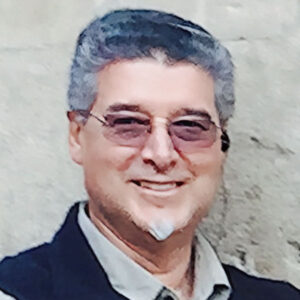 Dr. Daniel Arreola is an emeritus professor at the School of Geographical Sciences and Urban Planning at Arizona State University. He is a prolific scholar who focuses on the Hispanic experience of the American Southwest and the Mexican border. Several of his seven books have won major AAG awards, and he is described as knowing the Mexican American borderlands better than anybody else. He has passed his passion on to his students and is widely considered to be an outstanding educator. Dr. Arreola served the AAG through his long-standing engagement with the APCG. He was instrumental in designing the AP Human Geography course, thus leaving his mark on the geography education of countless young geographers.
Dr. Daniel Arreola is an emeritus professor at the School of Geographical Sciences and Urban Planning at Arizona State University. He is a prolific scholar who focuses on the Hispanic experience of the American Southwest and the Mexican border. Several of his seven books have won major AAG awards, and he is described as knowing the Mexican American borderlands better than anybody else. He has passed his passion on to his students and is widely considered to be an outstanding educator. Dr. Arreola served the AAG through his long-standing engagement with the APCG. He was instrumental in designing the AP Human Geography course, thus leaving his mark on the geography education of countless young geographers.
Ling Bian
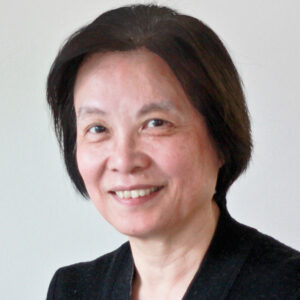 Dr. Ling Bian is a leading GIScientist whose extensive research, service, and outreach efforts, over three decades, have contributed greatly to the growth and development of quantitative approaches in geography. Her many research contributions include the development of a ground-breaking spatio-temporal approach for modeling the spread of communicable diseases among people and through social networks – an approach that has high relevance to understanding COVID-19 spread. Dr. Bian has provided outstanding service to our community through her leadership in national GIScience initiatives, her participation in national and international committees, and her dedicated efforts as section editor of the Annals of the AAG. She led a program to teach web GIS to high school students, creating pathways into geospatial careers for students from diverse backgrounds.
Dr. Ling Bian is a leading GIScientist whose extensive research, service, and outreach efforts, over three decades, have contributed greatly to the growth and development of quantitative approaches in geography. Her many research contributions include the development of a ground-breaking spatio-temporal approach for modeling the spread of communicable diseases among people and through social networks – an approach that has high relevance to understanding COVID-19 spread. Dr. Bian has provided outstanding service to our community through her leadership in national GIScience initiatives, her participation in national and international committees, and her dedicated efforts as section editor of the Annals of the AAG. She led a program to teach web GIS to high school students, creating pathways into geospatial careers for students from diverse backgrounds.
Heejun Chang
 Dr. Heejun Chang is an accomplished geographer who has achieved the highest levels of scholarship, practice, and service. His research focused on human modifications of hydrologic systems (including climate change), its impacts on society, and spatial integrative methodological approaches has produced more than 170 well-cited publications and over 100 invited talks. Chang is recognized with major awards that include the Abe Fellowship from the Social Science Research Council and Japan Foundation, Sigma-Xi, and the E. Willard and Ruby S. Millar Award from the American Association of Geographers (AAG). Mentoring graduate and undergraduate students is also among Dr. Chang’s exceptional work, which also includes many publications co-authored with students. Additionally, during service as chair of the Geography Department at Portland State University, Chang was instrumental in substantially enhancing the diversity of its faculty. A 25-year member of the AAG, Chang has also provided leadership as Chair of the Spatial Analysis and Modeling Specialty Group, board member of the Water Resources Specialty Group, organizer of numerous special sessions, and editor-in-chief of the Professional Geographer.
Dr. Heejun Chang is an accomplished geographer who has achieved the highest levels of scholarship, practice, and service. His research focused on human modifications of hydrologic systems (including climate change), its impacts on society, and spatial integrative methodological approaches has produced more than 170 well-cited publications and over 100 invited talks. Chang is recognized with major awards that include the Abe Fellowship from the Social Science Research Council and Japan Foundation, Sigma-Xi, and the E. Willard and Ruby S. Millar Award from the American Association of Geographers (AAG). Mentoring graduate and undergraduate students is also among Dr. Chang’s exceptional work, which also includes many publications co-authored with students. Additionally, during service as chair of the Geography Department at Portland State University, Chang was instrumental in substantially enhancing the diversity of its faculty. A 25-year member of the AAG, Chang has also provided leadership as Chair of the Spatial Analysis and Modeling Specialty Group, board member of the Water Resources Specialty Group, organizer of numerous special sessions, and editor-in-chief of the Professional Geographer.
Min Chen
 Dr. Min Chen, professor of geography at Nanjing Normal University, is a leading mid-career scholar in the field of GIScience. With his boundless energy and vision, Dr. Chen has played a key role in building and sustaining GIScience through his extensive research and service activities. Co-author of more than 180 publications, he is widely known for his development of a model-sharing and collaborative simulation platform that facilitates knowledge-building in an open web environment. As executive editor of the Annals of GIS, he has greatly elevated the journal’s profile, making it a leading outlet for GIScience research worldwide. His leadership in various AAG specialty groups and international GIS organizations like the International Association of Chinese Professionals in GIScience have greatly advanced GIS scholarship and provided essential support for emerging scholars in the field.
Dr. Min Chen, professor of geography at Nanjing Normal University, is a leading mid-career scholar in the field of GIScience. With his boundless energy and vision, Dr. Chen has played a key role in building and sustaining GIScience through his extensive research and service activities. Co-author of more than 180 publications, he is widely known for his development of a model-sharing and collaborative simulation platform that facilitates knowledge-building in an open web environment. As executive editor of the Annals of GIS, he has greatly elevated the journal’s profile, making it a leading outlet for GIScience research worldwide. His leadership in various AAG specialty groups and international GIS organizations like the International Association of Chinese Professionals in GIScience have greatly advanced GIS scholarship and provided essential support for emerging scholars in the field.
Andrew Curley
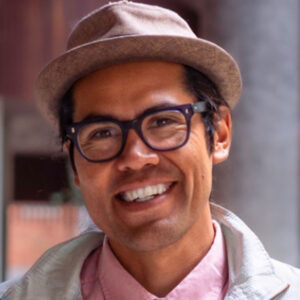 Andrew Curley is an exceptional early career geographer at the University of Arizona who has been instrumental in supporting the recent growth of Indigenous Geographies and the community of Indigenous geographers within the AAG. A member of the Navajo (Diné) Nation, Dr. Curley has been an exceptional mentor for new Indigenous geographers, as well as scholars of energy and political geographies. His research focuses on addressing urgent questions relating Indigenous sovereignty, climate change, and development. He is also one of a group of new political ecologists, who focus their work on questions of tribal sovereignty. He has been particularly involved in public facing scholarship among the Diné.
Andrew Curley is an exceptional early career geographer at the University of Arizona who has been instrumental in supporting the recent growth of Indigenous Geographies and the community of Indigenous geographers within the AAG. A member of the Navajo (Diné) Nation, Dr. Curley has been an exceptional mentor for new Indigenous geographers, as well as scholars of energy and political geographies. His research focuses on addressing urgent questions relating Indigenous sovereignty, climate change, and development. He is also one of a group of new political ecologists, who focus their work on questions of tribal sovereignty. He has been particularly involved in public facing scholarship among the Diné.
Kate Derickson
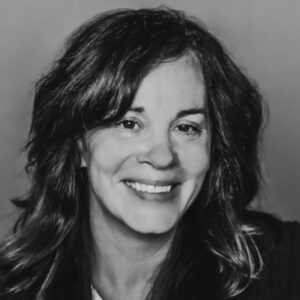 Dr. Kate Derickson is an outstanding geographer who has significantly advanced the discipline through innovative, community-engaged scholarship that tackles urgent issues of environmental justice, urban development, racism, and climate change with and for impacted communities. She has developed a rigorous research record that includes contributions to the top journals in geography, distinguished by the significance of community engagement. Derickson is perhaps best known for developing and applying the concept of “resourcefulness”—articulated in an article in Progress in Human Geography with over 1,200 citations—that directs researchers and university leaders to prioritize capacity building of community partners to participate in research design and policy advocacy. She also co-founded the CREATE (Co-Developing Research and Engaged Approaches to Transform Environments) Initiative, a multifaceted program to advance research and education at the intersection of equity and environment through community engagement, interdisciplinary scholarship, and graduate training. Her extensive efforts in training the next generation of community-engaged scholars are reflected in the Community Engaged Scholarship Award from the University of Minnesota. For the American Association of Geographers, Derickson has also demonstrated leadership as Chair of the Socialist and Critical Geography Specialty Group and as member of the Awards Committee and Editorial Board of the Annals of the AAG. She was also Convener of the Antipode Summer Institute. Derickson has a record of path-breaking scholarly interventions in urban theory and community engaged research and for radically opening spaces in the discipline for junior scholars.
Dr. Kate Derickson is an outstanding geographer who has significantly advanced the discipline through innovative, community-engaged scholarship that tackles urgent issues of environmental justice, urban development, racism, and climate change with and for impacted communities. She has developed a rigorous research record that includes contributions to the top journals in geography, distinguished by the significance of community engagement. Derickson is perhaps best known for developing and applying the concept of “resourcefulness”—articulated in an article in Progress in Human Geography with over 1,200 citations—that directs researchers and university leaders to prioritize capacity building of community partners to participate in research design and policy advocacy. She also co-founded the CREATE (Co-Developing Research and Engaged Approaches to Transform Environments) Initiative, a multifaceted program to advance research and education at the intersection of equity and environment through community engagement, interdisciplinary scholarship, and graduate training. Her extensive efforts in training the next generation of community-engaged scholars are reflected in the Community Engaged Scholarship Award from the University of Minnesota. For the American Association of Geographers, Derickson has also demonstrated leadership as Chair of the Socialist and Critical Geography Specialty Group and as member of the Awards Committee and Editorial Board of the Annals of the AAG. She was also Convener of the Antipode Summer Institute. Derickson has a record of path-breaking scholarly interventions in urban theory and community engaged research and for radically opening spaces in the discipline for junior scholars.
Chunyuan Diao
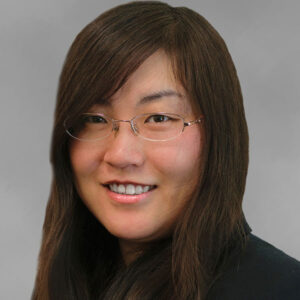 Dr. Chunyuan Diao is an outstanding early-career scholar whose extensive research contributions and service to the AAG have strengthened and advanced the field of remote sensing and geographers’ roles in it. Her publications in leading journals and extensive grant-funded research activities have creatively advanced our ability to monitor and model ecosystem dynamics across natural, human-natural, and disturbed biogeographical systems at multiple spatial and temporal scales. Dr. Diao’s leadership and service to the AAG Remote Sensing Specialty Group have fostered a supportive and expanding scholarly community; and her effective teaching and mentorship activities are helping to develop a new generation of remote sensing scholars whose gender and race/ethnic diversity more fully represent the populations impacted by global eco-environmental change.
Dr. Chunyuan Diao is an outstanding early-career scholar whose extensive research contributions and service to the AAG have strengthened and advanced the field of remote sensing and geographers’ roles in it. Her publications in leading journals and extensive grant-funded research activities have creatively advanced our ability to monitor and model ecosystem dynamics across natural, human-natural, and disturbed biogeographical systems at multiple spatial and temporal scales. Dr. Diao’s leadership and service to the AAG Remote Sensing Specialty Group have fostered a supportive and expanding scholarly community; and her effective teaching and mentorship activities are helping to develop a new generation of remote sensing scholars whose gender and race/ethnic diversity more fully represent the populations impacted by global eco-environmental change.
Jerome Dobson
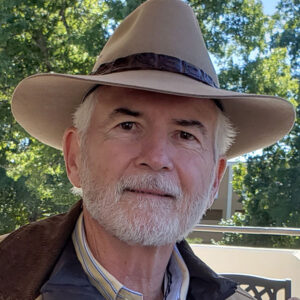 Dr. Jerome E. Dobson is a professor emeritus of geography at the University of Kansas. He has a rare combination of experience in government, academia, and the private sector. He is recognized as a pioneer of Geographic Information Science. He led development of the current world standards for estimating populations at risk during disasters of all sorts and for how landmines and mine fields are represented on maps worldwide. He coined the term “geoslavery” to raise awareness of geospatial technology in human tracking coercively or surreptitiously. Dr. Dobson has a record of dedicated service to AAG, including co-founding the AAG Energy Specialty Group, chairing the Honors Committee and GIS Specialty Group, and serving on the Editorial Board of The Professional Geographer and on various AAG committees. Dr. Dobson served as president of the American Geographical Society. His innovative and diverse scholarship and commitment to helping people across the world through research and action are exemplary. Recently he and two Italian colleagues retrospectively mapped ocean floors from 30,000 BP to the present and digitally discovered scores of islands, which they named the Bering Transitory Archipelago and which may have served as stepping stones for the first crossings from Siberia to Alaska.
Dr. Jerome E. Dobson is a professor emeritus of geography at the University of Kansas. He has a rare combination of experience in government, academia, and the private sector. He is recognized as a pioneer of Geographic Information Science. He led development of the current world standards for estimating populations at risk during disasters of all sorts and for how landmines and mine fields are represented on maps worldwide. He coined the term “geoslavery” to raise awareness of geospatial technology in human tracking coercively or surreptitiously. Dr. Dobson has a record of dedicated service to AAG, including co-founding the AAG Energy Specialty Group, chairing the Honors Committee and GIS Specialty Group, and serving on the Editorial Board of The Professional Geographer and on various AAG committees. Dr. Dobson served as president of the American Geographical Society. His innovative and diverse scholarship and commitment to helping people across the world through research and action are exemplary. Recently he and two Italian colleagues retrospectively mapped ocean floors from 30,000 BP to the present and digitally discovered scores of islands, which they named the Bering Transitory Archipelago and which may have served as stepping stones for the first crossings from Siberia to Alaska.
Song Gao
 Dr. Song Gao is an associate professor of geography and the director of the Geospatial Data Science Lab at the University of Wisconsin Madison. He has established himself as one of the thought leaders and highly cited scholars in the field of geospatial artificial intelligence (GeoAI) and was heavily involved in the geospatial modeling of the spread of COVID-19. He has successfully mentored young scholars and students in GIScience, offered workshops and webinars for the AAG and other organizations, and is an associate editor for AAG’s International Encyclopedia of Geography and International Journal of Geographical Information Science. Dr. Gao’s involvement with cutting-edge data science and AI techniques, his commitment to taking on and solving important challenges, and his enthusiasm for working with different international organizations make him a strong asset to the AAG.
Dr. Song Gao is an associate professor of geography and the director of the Geospatial Data Science Lab at the University of Wisconsin Madison. He has established himself as one of the thought leaders and highly cited scholars in the field of geospatial artificial intelligence (GeoAI) and was heavily involved in the geospatial modeling of the spread of COVID-19. He has successfully mentored young scholars and students in GIScience, offered workshops and webinars for the AAG and other organizations, and is an associate editor for AAG’s International Encyclopedia of Geography and International Journal of Geographical Information Science. Dr. Gao’s involvement with cutting-edge data science and AI techniques, his commitment to taking on and solving important challenges, and his enthusiasm for working with different international organizations make him a strong asset to the AAG.
Laura-Anne Minkoff-Zern
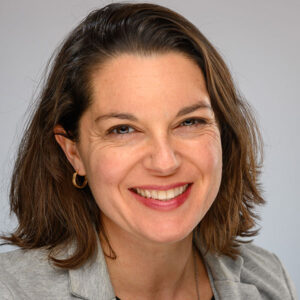 Laura-Anne Minkoff-Zern is an exceptional mid-career geographer who is a leader in a growing group of geographers who focus on issues of labor, race, and class within agriculture and food systems. Dr. Minkoff-Zern is the author of two books, one of which, The New American Farmer: Immigration, Race, and the Struggle for Sustainability, tells the story of Mexican and Central American immigrants, who are reshaping American farming by drawing on agricultural knowledge and practices from their home countries. Her second book, Will Work for Food: Labor Across the Food Chain, forthcoming in 2025, looks at exploration of the labor across the food chain, from farms to food processing and into the home, exploring the intersections between sustainability movements and labor organizing. Beyond her excellent research, she is also a leader in the subfield of food and agriculture, having served as chair and in many other roles in the AAG Geographies of Food and Agriculture Specialty Group. In this position she helped steward the specialty group towards new programs, such as a scholarship for community food and agriculture partnership research. As an associate professor in the Food Studies Program and an affiliate of the Department of Geography and the Environment at Syracuse University, she is at the forefront of bridging the disciplines of Geography and Food Studies.
Laura-Anne Minkoff-Zern is an exceptional mid-career geographer who is a leader in a growing group of geographers who focus on issues of labor, race, and class within agriculture and food systems. Dr. Minkoff-Zern is the author of two books, one of which, The New American Farmer: Immigration, Race, and the Struggle for Sustainability, tells the story of Mexican and Central American immigrants, who are reshaping American farming by drawing on agricultural knowledge and practices from their home countries. Her second book, Will Work for Food: Labor Across the Food Chain, forthcoming in 2025, looks at exploration of the labor across the food chain, from farms to food processing and into the home, exploring the intersections between sustainability movements and labor organizing. Beyond her excellent research, she is also a leader in the subfield of food and agriculture, having served as chair and in many other roles in the AAG Geographies of Food and Agriculture Specialty Group. In this position she helped steward the specialty group towards new programs, such as a scholarship for community food and agriculture partnership research. As an associate professor in the Food Studies Program and an affiliate of the Department of Geography and the Environment at Syracuse University, she is at the forefront of bridging the disciplines of Geography and Food Studies.
Chandana Mitra
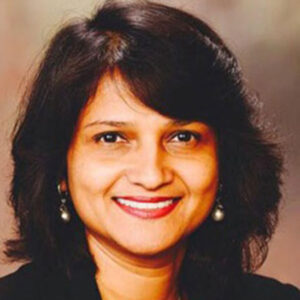 Dr. Chandana Mitra is an associate professor in the Department of Geosciences at Auburn University. She uses her training in urban climate, GIS, and remote sensing to work across disciplinary boundaries on topics such as the sustainability and resilience of cities in the face of climate change. She is committed to addressing STEM education and importance of science communication in her research. She is an advocate for Diversity, Equity, and Inclusion (DEI), for example by mentoring girls interested in STEM at the EmpowHER conference, co-founding GeoFIDE, a DEI organization the Geosciences, and by supporting underrepresented students. Dr. Mitra has held various positions in the AAG’s Asian and Regional Development and Planning Specialty groups and brings a strong commitment to social justice issues and cross-disciplinary approaches to the AAG.
Dr. Chandana Mitra is an associate professor in the Department of Geosciences at Auburn University. She uses her training in urban climate, GIS, and remote sensing to work across disciplinary boundaries on topics such as the sustainability and resilience of cities in the face of climate change. She is committed to addressing STEM education and importance of science communication in her research. She is an advocate for Diversity, Equity, and Inclusion (DEI), for example by mentoring girls interested in STEM at the EmpowHER conference, co-founding GeoFIDE, a DEI organization the Geosciences, and by supporting underrepresented students. Dr. Mitra has held various positions in the AAG’s Asian and Regional Development and Planning Specialty groups and brings a strong commitment to social justice issues and cross-disciplinary approaches to the AAG.
Jessie Poon
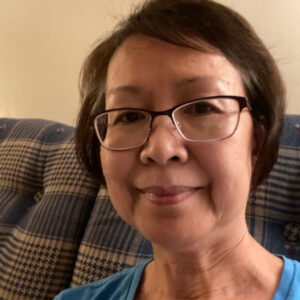 Dr. Jessie Poon is among the world’s leading economic geographers, with a substantial record of research that includes four co-authored books and more than one hundred journal articles and book chapters. Her research—from early path-breaking work on the geographical structure of trade patterns and dynamics of regionalization to more recent explorations of social, cultural, financial, and information networks and to digital economies more generally—has been remarkably consistent over the last three decades, with uniformly high-quality writings distributed across leading journals in human geography and into related fields of regional science, business, communications, trade and development, and allied social sciences. In many leadership roles, Poon was also chair of the Regional Studies Association, Committee Member of the Council of the American Association of Geographers (AAG), Chair of the Southeast Section of the Asian Geography Specialty Group, member of the AAG Research Grants Committee, and editor or member of the Editorial Board of numerous top journals in her field. A longtime member of the AAG, Dr. Poon has also worked tirelessly to make geography, and the academy more broadly, a more equitable, diverse, and inclusive community. She has published extensively on the state of women in her field, advocated for other female scholars, championed increasing representation of female scholars in research journals, including editorial boards, while serving as the first female editor of Papers in Regional Science. Her trailblazing efforts have opened space within economic geography for women to both contribute to important debates and flourish while doing so.
Dr. Jessie Poon is among the world’s leading economic geographers, with a substantial record of research that includes four co-authored books and more than one hundred journal articles and book chapters. Her research—from early path-breaking work on the geographical structure of trade patterns and dynamics of regionalization to more recent explorations of social, cultural, financial, and information networks and to digital economies more generally—has been remarkably consistent over the last three decades, with uniformly high-quality writings distributed across leading journals in human geography and into related fields of regional science, business, communications, trade and development, and allied social sciences. In many leadership roles, Poon was also chair of the Regional Studies Association, Committee Member of the Council of the American Association of Geographers (AAG), Chair of the Southeast Section of the Asian Geography Specialty Group, member of the AAG Research Grants Committee, and editor or member of the Editorial Board of numerous top journals in her field. A longtime member of the AAG, Dr. Poon has also worked tirelessly to make geography, and the academy more broadly, a more equitable, diverse, and inclusive community. She has published extensively on the state of women in her field, advocated for other female scholars, championed increasing representation of female scholars in research journals, including editorial boards, while serving as the first female editor of Papers in Regional Science. Her trailblazing efforts have opened space within economic geography for women to both contribute to important debates and flourish while doing so.
Danielle Purifoy
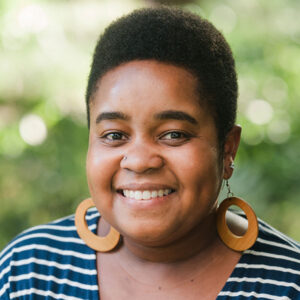 Danielle Purifoy is an assistant professor in the Department of Geography at the University of North Carolina-Chapel Hill. Despite being just a few years beyond her PhD, she has already established herself as a prominent scholar of Black Geographies, political geography, and legal geographies. She also engages in community work and practical environmental engagement well beyond the university. She studies, in particular, “the making and unmaking of Black Towns,” focusing on their experiences of environmental racism. She found, in particular, that towns in the Southern US often developed two parallel communities, one white and one Black. The Black town was often not included within the incorporated boundaries, allowing for a devastating amount of environmental racism. Beyond this research, Dr. Purifoy is growing leader and mentor within the Black Geographies community, is a co-leader of the Mapping Black Towns project, has been a co-editor of numerous special journal issues, and has given invited lectures at universities around the world. She is truly an impressive early-career geographer.
Danielle Purifoy is an assistant professor in the Department of Geography at the University of North Carolina-Chapel Hill. Despite being just a few years beyond her PhD, she has already established herself as a prominent scholar of Black Geographies, political geography, and legal geographies. She also engages in community work and practical environmental engagement well beyond the university. She studies, in particular, “the making and unmaking of Black Towns,” focusing on their experiences of environmental racism. She found, in particular, that towns in the Southern US often developed two parallel communities, one white and one Black. The Black town was often not included within the incorporated boundaries, allowing for a devastating amount of environmental racism. Beyond this research, Dr. Purifoy is growing leader and mentor within the Black Geographies community, is a co-leader of the Mapping Black Towns project, has been a co-editor of numerous special journal issues, and has given invited lectures at universities around the world. She is truly an impressive early-career geographer.
Mark Rosenberg
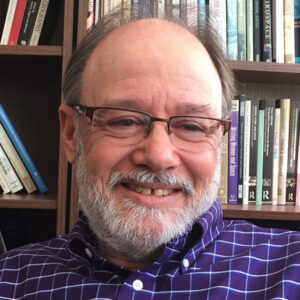 Dr. Mark Rosenberg is a distinguished health geographer who has been a tireless advocate for geography and geographers throughout his career. His leadership, vision, and enduring commitment to mentorship have propelled the growth and development of health and medical geography. His influential research contributions provide rigorous evidence about how geographical and sociopolitical processes shape unequal access to health care, especially for vulnerable populations. Bringing energy, vision, and leadership to a wide range of national and international geographical organizations, including health geography groups of the AAG, CAG, and IGU, he has offered critical insights and direction that have strongly supported the groups’ health, growth, and development. By effectively mobilizing enthusiasm, wisdom, care, and practical advice, Dr. Rosenberg has excelled in mentoring diverse graduate students and early-career faculty, many of whom have achieved successful careers in health geography research and policy.
Dr. Mark Rosenberg is a distinguished health geographer who has been a tireless advocate for geography and geographers throughout his career. His leadership, vision, and enduring commitment to mentorship have propelled the growth and development of health and medical geography. His influential research contributions provide rigorous evidence about how geographical and sociopolitical processes shape unequal access to health care, especially for vulnerable populations. Bringing energy, vision, and leadership to a wide range of national and international geographical organizations, including health geography groups of the AAG, CAG, and IGU, he has offered critical insights and direction that have strongly supported the groups’ health, growth, and development. By effectively mobilizing enthusiasm, wisdom, care, and practical advice, Dr. Rosenberg has excelled in mentoring diverse graduate students and early-career faculty, many of whom have achieved successful careers in health geography research and policy.
Shih-Lung Shaw
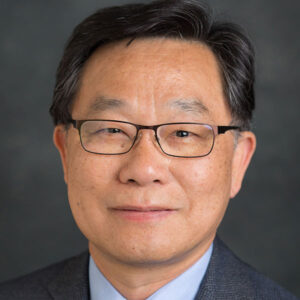 Dr. Shih-Lung Shaw is a leader in the areas of time geography and the applications of GIS to transportation geography. He is current Chancellor’s Professor in the Department of Geography and Sustainability at the University of Tennessee-Knoxville. His research developed a space-time GIS framework, which has been used to analyze a large variety of human dynamics phenomena, including both longtime issues such as travel dynamics and more recent phenomenon such as COVID infection patterns. Beyond his innovative, important, and useful research, Dr. Shaw has been a leader in the AAG. He is a former chair of the Transportation Geography Specialty Group and treasurer of the GIS group, and has been the lead organizer of the Human Dynamics Symposium at AAG annual meetings for eight years. Shih-Lung has also been president of the UCGIS and has been a strong supporter of a project to promote the professional development of women in GIScience.
Dr. Shih-Lung Shaw is a leader in the areas of time geography and the applications of GIS to transportation geography. He is current Chancellor’s Professor in the Department of Geography and Sustainability at the University of Tennessee-Knoxville. His research developed a space-time GIS framework, which has been used to analyze a large variety of human dynamics phenomena, including both longtime issues such as travel dynamics and more recent phenomenon such as COVID infection patterns. Beyond his innovative, important, and useful research, Dr. Shaw has been a leader in the AAG. He is a former chair of the Transportation Geography Specialty Group and treasurer of the GIS group, and has been the lead organizer of the Human Dynamics Symposium at AAG annual meetings for eight years. Shih-Lung has also been president of the UCGIS and has been a strong supporter of a project to promote the professional development of women in GIScience.
Selima Sultana
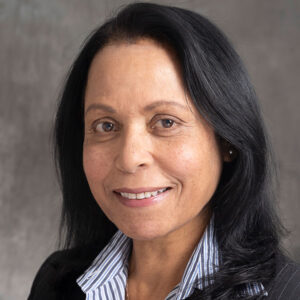 Dr. Selima Sultana is Professor and Associate Head in the Department of Geography, Environment, and Sustainability at the University of North Carolina Greensboro. She is an outstanding scholar, a committed member of the AAG, and a mentor to many, specially to early career academics, and women and BIPOC geographers. Her service to the AAG is varied and extensive. She has been President of the AAG Regional Division of Southeast, Chair of the Transportation Geography Specialty Group, served on the AAG Council as Regional Councilor, representing the Southeast Division, Chair of the AAG Publications and the Status of Women in Geography Committees, and co-founder of the new Protected Areas Specialty Group. In addition, Dr. Sultana has been on the editorial board of many publications including The Professional Geographer and Southeastern Geographer, the latter where she served as editor. She is also on the AAG Mentoring Task Force, which highlights her ongoing mentorship. Likewise, at her home campus of UNC Greensboro, she has been a leading mentor to both graduate and undergraduate students. Dr. Sultana’s is also an exceptional researcher focuses on a large variety of social justice issues, including accessibility and the low visitation rates of African Americans at National Parks, and how the changing structure of urban areas increases commuting times for BIPOC women.
Dr. Selima Sultana is Professor and Associate Head in the Department of Geography, Environment, and Sustainability at the University of North Carolina Greensboro. She is an outstanding scholar, a committed member of the AAG, and a mentor to many, specially to early career academics, and women and BIPOC geographers. Her service to the AAG is varied and extensive. She has been President of the AAG Regional Division of Southeast, Chair of the Transportation Geography Specialty Group, served on the AAG Council as Regional Councilor, representing the Southeast Division, Chair of the AAG Publications and the Status of Women in Geography Committees, and co-founder of the new Protected Areas Specialty Group. In addition, Dr. Sultana has been on the editorial board of many publications including The Professional Geographer and Southeastern Geographer, the latter where she served as editor. She is also on the AAG Mentoring Task Force, which highlights her ongoing mentorship. Likewise, at her home campus of UNC Greensboro, she has been a leading mentor to both graduate and undergraduate students. Dr. Sultana’s is also an exceptional researcher focuses on a large variety of social justice issues, including accessibility and the low visitation rates of African Americans at National Parks, and how the changing structure of urban areas increases commuting times for BIPOC women.
Yehua Dennis Wei
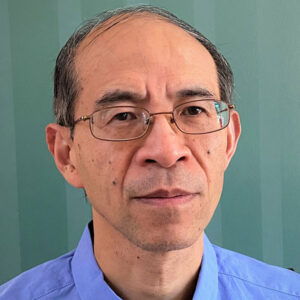 Dr. Yehua Dennis Wei is an internationally renowned urban/economic geographer whose research centers on effects of globalization and institutional change on cities, regions, and sustainability. A pioneer in the study of regional development and regional/ spatial inequality in China, Wei has published five books and more than 250 journal articles and book chapters. He has also edited a dozen journal special issues and served as editor-in-chief of Applied Geography. His awards and honors include the Excellence in Research Award from the University of Wisconsin-Milwaukee, the Distinguished Scholar Award from the Regional Development and Planning Specialty Group of the American Association of Geographers (AAG), the Outstanding Young Scientist Award from the National Natural Science Foundation of China, and a role as Overseas Evaluation Expert of the Chinese Academy of Sciences. Over nearly 30 years, Dr. Wei has provided valuable leadership to the AAG by organizing numerous special sessions and international conferences, and by chairing three AAG specialty groups (China Geography, Asian Geography, and Regional Development and Planning). The quality and impact of his service are also reflected in the Distinguished Service Award from each of these groups. In addition to revealing spatial inequality and equity issues in China through his research, Dr. Wei has also worked hard to enhance diversity and inclusion in geography and the academe by serving on the AAG’s Enhancing Diversity Committee, and at the University of Utah, on the Diversity Committee, Senate Advisory Committee on Diversity, and Senate Committee on Equity, Diversity, and Inclusion.
Dr. Yehua Dennis Wei is an internationally renowned urban/economic geographer whose research centers on effects of globalization and institutional change on cities, regions, and sustainability. A pioneer in the study of regional development and regional/ spatial inequality in China, Wei has published five books and more than 250 journal articles and book chapters. He has also edited a dozen journal special issues and served as editor-in-chief of Applied Geography. His awards and honors include the Excellence in Research Award from the University of Wisconsin-Milwaukee, the Distinguished Scholar Award from the Regional Development and Planning Specialty Group of the American Association of Geographers (AAG), the Outstanding Young Scientist Award from the National Natural Science Foundation of China, and a role as Overseas Evaluation Expert of the Chinese Academy of Sciences. Over nearly 30 years, Dr. Wei has provided valuable leadership to the AAG by organizing numerous special sessions and international conferences, and by chairing three AAG specialty groups (China Geography, Asian Geography, and Regional Development and Planning). The quality and impact of his service are also reflected in the Distinguished Service Award from each of these groups. In addition to revealing spatial inequality and equity issues in China through his research, Dr. Wei has also worked hard to enhance diversity and inclusion in geography and the academe by serving on the AAG’s Enhancing Diversity Committee, and at the University of Utah, on the Diversity Committee, Senate Advisory Committee on Diversity, and Senate Committee on Equity, Diversity, and Inclusion.
Presidential Achievement Award
Ruth Wilson Gilmore
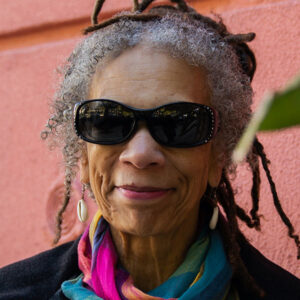 Dr. Ruth Wilson Gilmore is recognized for her extraordinary contributions to the confrontation with racial capitalism and the conditions necessary for structural reform, particularly of carceral institutions and prison systems, mass punishment, and criminalization and race. She has also shared her expertise in labor and social movements, the intersections of race and gender, the African Diaspora and Black Radical tradition.
Dr. Ruth Wilson Gilmore is recognized for her extraordinary contributions to the confrontation with racial capitalism and the conditions necessary for structural reform, particularly of carceral institutions and prison systems, mass punishment, and criminalization and race. She has also shared her expertise in labor and social movements, the intersections of race and gender, the African Diaspora and Black Radical tradition.
As Director of the Center for Place, Culture, and Politics at the Graduate Center at CUNY, she has mentored geographers with her boundless dedication to the possible. Hope is a pedagogical tool in Dr. Gilmore’s hands, used incisively to question the status quo and imagine a different future of restorative, rather than punitive, approaches to justice and civic life. She is also the author or co-author of more than a dozen books including The Golden Gulag: Prisons, Surplus, Crisis, and Opposition in Globalizing California (Berkeley: University of California Press, 2007) and Change Everything: Racial Capitalism and the Case for Abolition (ed. Naomi Murakawa; Haymarket 2023), as well as numerous papers.
A frequent honoree for her visionary work, Gilmore is the recipient of the 2022 Marguerite Casey Freedom Scholar Prize, a member of the American Academy of Arts and Sciences since 2021, recipient of the 2021 National Book Foundation Prize, and co-honoree for the 2020 Lannan Foundation Lifetime Cultural Freedom Prize (with Angela Y. Davis, and Michael Ryan Davis). From AAG, she has received the 2020 Lifetime Achievement Honors, and the 2014 Harold Rose Award for Anti-Racist Research and Practice.
J. Marshall Shepherd
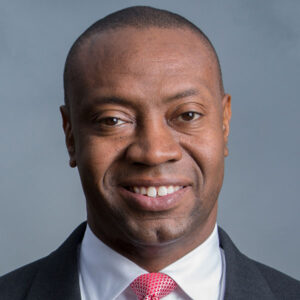 Dr. J. Marshall Shepherd is the Georgia Athletic Association Distinguished Professor of Geography and Atmospheric Sciences at the University of Georgia and serves as associate director of Climate and Outreach for the Institute for Resilient Infrastructure Systems. He is a Full Professor in the Department of Geography where he was a previous Associate Department Head. In 2023, he was appointed associate dean for Research, Scholarship and Partnerships in the Franklin College of Arts and Sciences at the University of Georgia.
Dr. J. Marshall Shepherd is the Georgia Athletic Association Distinguished Professor of Geography and Atmospheric Sciences at the University of Georgia and serves as associate director of Climate and Outreach for the Institute for Resilient Infrastructure Systems. He is a Full Professor in the Department of Geography where he was a previous Associate Department Head. In 2023, he was appointed associate dean for Research, Scholarship and Partnerships in the Franklin College of Arts and Sciences at the University of Georgia.
Dr. Shepherd is recognized for the creative use of his expertise on weather, climate, and remote sensing toward raising public awareness, increasing the public’s understanding of climate change, and drawing attention to the importance of geography and the need to create a more diverse, just discipline. His areas of research include urban climate, hydrometeorological extremes, weather-climate risk, and innovative outreach strategies.
Dr. Shepherd’s extensive public scholarship includes hosting The Weather Channel’s award-winning Weather Geeks and serving as a senior contributor to Forbes Magazine. He routinely appears on CBS Face The Nation, NOVA, The Today Show, CNN, Fox News, The Weather Channel, and several other programs and stations. Nearly 3 million people have viewed his three TED Talks, and he frequently advises key leaders at NASA, the White House, Congress, Department of Defense, and officials from foreign countries. Dr. Shepherd has written editorials for CNN, The Washington Post, The Atlanta Journal-Constitution, and other outlets, and has been featured in Time Magazine, Popular Mechanics, and NPR Science Friday. With nearly 100 peer-reviewed scholarly publications, Dr. Shepherd has also attracted several millions of dollars in extramural research support from NASA, National Science Foundation, Department of Energy, Defense Threat Reduction Agency, U.S. Forest Service and the Ray C. Anderson Foundation, and was also in leading the effort for UGA to become the 78th member of the University Corporation for Atmospheric Research (UCAR).
The recipient of many honors, including the AAG Media Achievement award, Dr. Shepherd was elected to the National Academy of Sciences, National Academy of Engineering, and the American Academy of Arts and Sciences. He remains dedicated to creating curiosity and opportunities for students, and especially Black students, to increase diversity in the discipline. He has authored a children’s book on weather and weather instruments called Dr. Fred’s Weather Watch, as well as a book entitled The Race Awakening of 2020: A 6-Step Guide to Move Forward. He co-founded the Alcova Elementary Weather Science Chat series that exposes K-5 students to world-class scientists.
AAG Media Achievement Award
Patricia Solís, David Hondula, Jennifer Vanos, Ariane Middel and Melissa Guardaro
The 2024 Media Achievement Award is awarded to Patricia Solís, David Hondula, Jennifer Vanos, Ariane Middel, and Melissa Guardaro for their work at Knowledge Exchange for Resilience at Arizona State University. This accomplished team of researchers employs a diverse range of geographic methods and approaches to generate world-class research on the urgent challenges posed by extreme heat. They adeptly transform their findings into actionable knowledge in the policy and community spheres. Their work has been featured in various high profile outlets, including Nightly News with Lester Holt, the Today Show, Good Morning America, The Washington Post, The New York Times, National Geographic, Rolling Stone Magazine, Slate, The Guardian, The Weather Channel, National Public Radio, Scientific American, High Country News, Los Angeles Times, Dallas Morning News, Wired, The New Yorker, CBS Sunday Morning, and many more. Their sustained efforts in science communication and sharing concrete, actionable steps to address extreme heat are significantly influencing the public policy landscape in Arizona, effectively demonstrating the value of geographical research in addressing our most pressing environmental problems.
For all these reasons, the AAG proudly recognizes Patricia Solís, David Hondula, Jennifer Vanos, Ariane Middel, and Melissa Guardaro with the 2024 AAG Media Achievement Award.
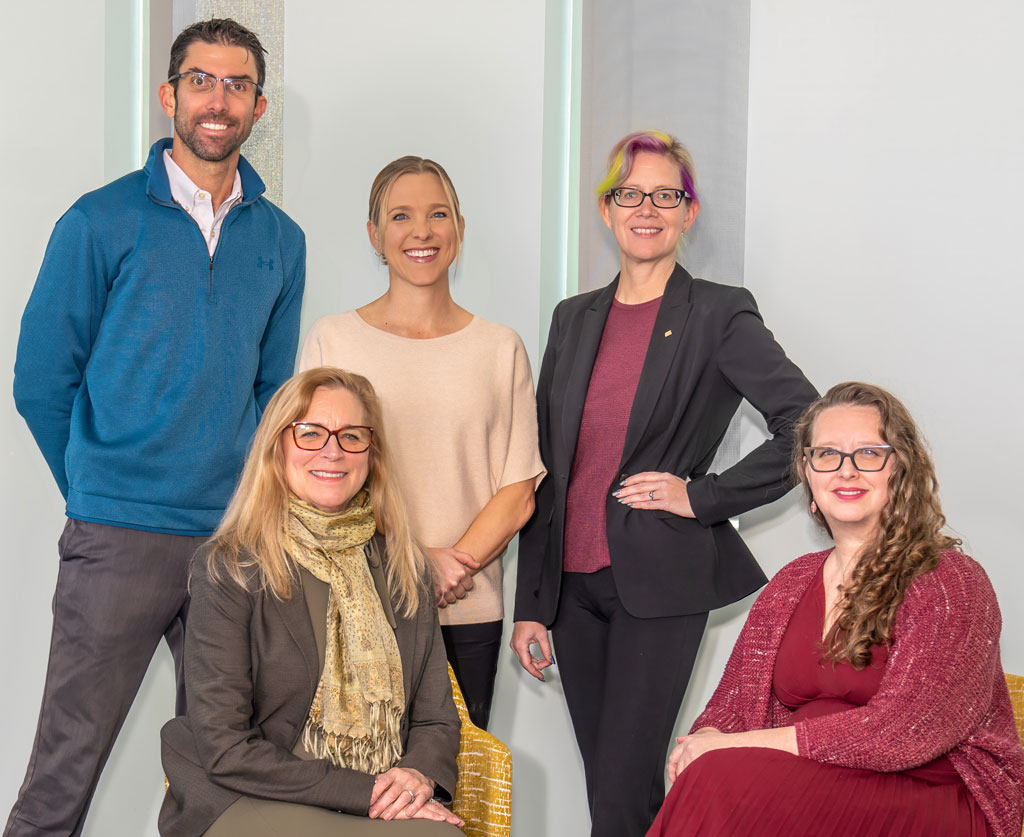
Credit: Kevin Bushaw, Knowledge Exchange for Resilience, ASU
Learn more about the AAG Media Achievement Award
AAG Honorary Geographer
Recognizes excellence in research, teaching, or writing on geographic topics by non-geographers
Charles Nainoa Thompson
 Explorer, Pwo Navigator, cultural revivalist, educator, and storyteller Charles Nainoa Thompson is this year’s Honorary Geographer, an award given annually by the American Association of Geographers to recognize an exceptional leader in the arts, research, teaching, and writing whose work addresses geographic topics.
Explorer, Pwo Navigator, cultural revivalist, educator, and storyteller Charles Nainoa Thompson is this year’s Honorary Geographer, an award given annually by the American Association of Geographers to recognize an exceptional leader in the arts, research, teaching, and writing whose work addresses geographic topics.
Thompson is being recognized for his ground-breaking efforts in reviving ancestral wayfinding practices and policy-shifting advocacy on behalf of the health of our planet. Inspired by the ancient art of wayfinding, Thompson learned to sail across the vast Pacific Ocean from Mau Piailug, a legendary master navigator from Satawal, and learned lessons on astronomy from Bishop Museum Planetarium Lecturer Will Kyselka.
In 1980, he embarked on his first journey as navigator from Hawaiʻi to Tahiti, guiding the Hōkūle‘a with only the stars, the winds, and the waves. Since then, he has led many more voyages of Hōkūleʻa, a traditional double-hulled canoe, to reconnect with the diverse cultures and lands of Polynesia.
He currently serves as CEO of the Polynesian Voyaging Society, where he continues to pass down knowledge to students of navigation and voyaging. Thompson is a former chair of the Board of Trustees for Kamehameha Schools and a former member of the Board of Regents for the University of Hawaiʻi. Thompson received his Honorary Doctorate from University of Hawai‘i in 2016. His natural leadership skills have galvanized vast and diverse sectors throughout the community to realize the importance of caring for our planet and all of humanity. These efforts have earned him numerous awards including the 2015 Peter Benchley Ocean Award for Excellence in Marine Exploration, the 2001 “Unsung Hero of Compassion” award from his Holiness XIV Dalai Lama on behalf of Wisdom in Action, the Native Hawaiian Education Association’s Manomano Kaʻike Educator of the Year, the 2015 Asia Pacific Community Building Award from the East-West Center, the 2013 Visionary Award from the Maui Film Festival, the 2016 Lifetime Achievement Award from the National Marine Sanctuaries Foundation, the 2017 Hubbard Medal from National Geographic Society, and the 2017 Explorers Club Medal.
Previous AAG Honorary Geographer awardees have included authors Rebecca Solnit and N.K. Jemisin, philosopher Judith Butler, architect Maya Lin, Nobel Laureate in economics Paul Krugman, sociologist Saskia Sassen, economist Jeffrey Sachs, among others.
Further Reading:
- Nainoa Thompson’s work is featured in Hawaiki Rising: Hōkūle‘a, Nainoa Thompson, and the Hawaiian Renaissance by Sam Low (University of Hawai‘i Press 2018).
- See also Nainoa Thompson (hokulea.com) and Nainoa Thompson – Hōkūleʻa (hokulea.com)
AAG Stanley Brunn Award for Creativity in Geography
Given to an individual geographer or team that has demonstrated originality, creativity, and significant intellectual breakthroughs in geography.
Margaret Wickens Pearce
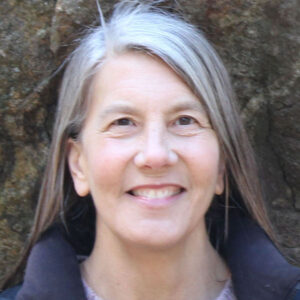 This year’s recipient of the Stanley Brunn Award for Creativity in Geography is Margaret Wickens Pearce, cartographer and founder of Studio1:1, a cartographic artistic practice. A member of the Citizen Potawatomi Nation, Pearce is dedicated to cartography as a form of writing that can combine and highlight narratives and dialogues across cultures and viewpoints. A focal point of her work is the application of cartography to express and elevate Indigenous geographies.
This year’s recipient of the Stanley Brunn Award for Creativity in Geography is Margaret Wickens Pearce, cartographer and founder of Studio1:1, a cartographic artistic practice. A member of the Citizen Potawatomi Nation, Pearce is dedicated to cartography as a form of writing that can combine and highlight narratives and dialogues across cultures and viewpoints. A focal point of her work is the application of cartography to express and elevate Indigenous geographies.
Pearce’s creative work in mapping has brought Indigenous knowledge more prominently into public discussion. Working with the elements of cartographic language, informed by Indigenous methodologies, she seeks to create ruminative spaces for restoring shared memory and creating change. Recent work includes the Land-Grab Universities project (2020), and numerous projects that map Indigenous place-name knowledge into the present, such as Coming Home to Indigenous Place Names in Canada (2017). Pearce and her collaborators often use mapping to open up literal and figurative spaces of consideration, such as the large-scale 2020 installation of two maps at the Field Museum as part of Native Truths: Our Voices, Our Stories. The maps create a place in which to confront and investigate the concept of “Removal” through the mapped experiences of Myaamia and Hoocąk people.
Among Pearce’s current projects is Inuit Nunangat, a map about the ways our carbon emissions interfere with Inuit self-determination and earth’s balance, and Mississippi Dialogues, a public art project resituating testimonies about flooding into an Indigenized Mississippi River.
Learn more about the AAG Stanley Brunn Award
AAG Wilbanks Prize for Transformational Research in Geography
Awarded to geographers from the academic, public, or private sectors whose research has made transformational contributions to Geography or GIScience, or to Science and Society
Qihao Weng
 The 2024 AAG Wilbanks Prize for Transformational Research in Geography is awarded to Qihao Weng, Chair Professor of geomatics and artificial intelligence at Hong Kong Polytechnic University. Weng is also a professor of geography at Indiana State University, and the director of Indiana State’s Center for Urban and Environmental Change. Professor Weng has defined urban remote sensing as a new field and has transformed urban environmental research with theoretical and technical advances, including novel algorithms and innovative methods for sub-pixel-scale analysis and time series imagery. His research has significantly advanced our theoretical understanding and empirical knowledge of urban heat islands, urban sprawl, urbanization effects, and urban environmental sustainability. By establishing relationships among satellite thermal infrared imagery, land surface temperature, and air temperature, his research connects remotely sensed data to urban landscape patterns, radiation budgets, and climate change. His 2004 methodology for estimating land-surface temperature from satellite-derived attributes of vegetation, developed with Lu and Schubring, has had far-reaching impact in a range of fields, including urban geography, landscape ecology, urban planning, urban meteorology, and climatology.
The 2024 AAG Wilbanks Prize for Transformational Research in Geography is awarded to Qihao Weng, Chair Professor of geomatics and artificial intelligence at Hong Kong Polytechnic University. Weng is also a professor of geography at Indiana State University, and the director of Indiana State’s Center for Urban and Environmental Change. Professor Weng has defined urban remote sensing as a new field and has transformed urban environmental research with theoretical and technical advances, including novel algorithms and innovative methods for sub-pixel-scale analysis and time series imagery. His research has significantly advanced our theoretical understanding and empirical knowledge of urban heat islands, urban sprawl, urbanization effects, and urban environmental sustainability. By establishing relationships among satellite thermal infrared imagery, land surface temperature, and air temperature, his research connects remotely sensed data to urban landscape patterns, radiation budgets, and climate change. His 2004 methodology for estimating land-surface temperature from satellite-derived attributes of vegetation, developed with Lu and Schubring, has had far-reaching impact in a range of fields, including urban geography, landscape ecology, urban planning, urban meteorology, and climatology.
AAG Harold M. Rose Award for Anti-Racism Research and Practice
Honors geographers who have served to advance the discipline through their research and had on impact on anti-racist practice.
Nik Heynen
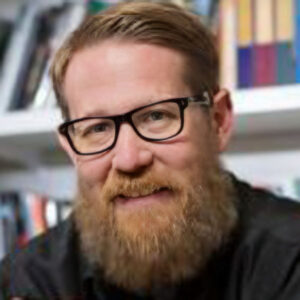 Dr. Nik Heynen has an exceptional record in anti-racism scholarship, with a focus on abolition geography. His work highlights the intricate connections between environmental racism, racial capitalism, and political ecology, making him one of the most prominent voices in anti-racism geographical research. Moreover, Dr. Heynen has incorporated anti-racism practices in his other endeavors in and out of the academy, including mentoring and advocating for future generations of anti-racism scholars, as well as translating scholarship into tangible and positive impacts on communities through anti-racist community engagement activities and initiatives.
Dr. Nik Heynen has an exceptional record in anti-racism scholarship, with a focus on abolition geography. His work highlights the intricate connections between environmental racism, racial capitalism, and political ecology, making him one of the most prominent voices in anti-racism geographical research. Moreover, Dr. Heynen has incorporated anti-racism practices in his other endeavors in and out of the academy, including mentoring and advocating for future generations of anti-racism scholars, as well as translating scholarship into tangible and positive impacts on communities through anti-racist community engagement activities and initiatives.
Dr. Heynen’s research, which connects Black activist work to placemaking projects, exposes the workings of racial capitalism and the different ways Black communities reinvent political ecologies. This can be gleaned in his ongoing work on Gullah Geechee community geographies, his research on the Black Panthers, his work on abolition ecologies, and his deep commitment to working within and closely with the Sapelo Island community. His work with Antipode, which includes the now longstanding “Institute for Geographies of Justice” program, draws attention to just some of the ways he lifts up and supports junior faculty and Ph.D. students, which, as one of his referees notes, challenges academic hierarchies.
Learn more about the AAG Harold M. Rose Award
Diversity & Inclusion Award
Honors geographers who have pioneered efforts toward or actively participated in efforts toward encouraging a more diverse discipline over the course of several years.
Elizabeth Olson
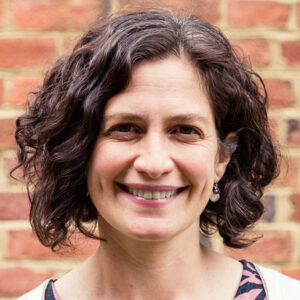 Dr. Elizabeth Olson, professor of geography at the University of North Carolina-Chapel Hill, is recognized for the breadth and depth of her commitments to fostering inclusivity and care. Dr. Olson has been an outstanding mentor for scholars of color and women. As department chair, she made a concerted effort to create a more diverse faculty, focusing on the recruitment and retention of scholars of color. She has worked continuously to build a department culture in which faculty and students of color can thrive. During the Covid-19 pandemic, Dr. Olson’s expertise in care work informed how the university responded to the pandemic, contributing to the formulation of policies to support early-career faculty. Finally, Dr. Olson’s scholarship on care ethics, youth, and religion speaks to her dedication to creating more welcoming and inclusive spaces in the university and in the discipline.
Dr. Elizabeth Olson, professor of geography at the University of North Carolina-Chapel Hill, is recognized for the breadth and depth of her commitments to fostering inclusivity and care. Dr. Olson has been an outstanding mentor for scholars of color and women. As department chair, she made a concerted effort to create a more diverse faculty, focusing on the recruitment and retention of scholars of color. She has worked continuously to build a department culture in which faculty and students of color can thrive. During the Covid-19 pandemic, Dr. Olson’s expertise in care work informed how the university responded to the pandemic, contributing to the formulation of policies to support early-career faculty. Finally, Dr. Olson’s scholarship on care ethics, youth, and religion speaks to her dedication to creating more welcoming and inclusive spaces in the university and in the discipline.
Susan Hardwick Excellence in Mentoring Award
Given to an individual geographer, group, or department who has demonstrated extraordinary leadership in building supportive academic and professional environments in their departments, associations, and institutions and guiding the academic and or professional growth of their students and junior colleagues.
Derek Alderman
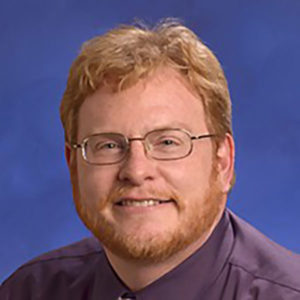 Dr. Derek Alderman is recognized for his outstanding and impactful contributions to mentorship of students and early career faculty colleagues. The committee particularly noted the caring and inclusive environment Dr. Alderman creates which supports a highly valued climate of collegiality within the University of Tennessee Department of Geography and Sustainability, the impressive number of students mentored throughout his career, his holistic “coaching up” mentorship style that centers diversity, equity, and inclusion, draws upon his own life experience, and goes far beyond a one-size-fits-all mentorship approach. The committee was moved by the testimonies and letters of support submitted by Dr. Alderman’s mentees which embody the spirit, memory, and legacy of the late Dr. Susan Hardwick.
Dr. Derek Alderman is recognized for his outstanding and impactful contributions to mentorship of students and early career faculty colleagues. The committee particularly noted the caring and inclusive environment Dr. Alderman creates which supports a highly valued climate of collegiality within the University of Tennessee Department of Geography and Sustainability, the impressive number of students mentored throughout his career, his holistic “coaching up” mentorship style that centers diversity, equity, and inclusion, draws upon his own life experience, and goes far beyond a one-size-fits-all mentorship approach. The committee was moved by the testimonies and letters of support submitted by Dr. Alderman’s mentees which embody the spirit, memory, and legacy of the late Dr. Susan Hardwick.
Glenda Laws Award
Recognizes outstanding early to mid-career scholars’ contributions to geographic research on social issues.
Mohammed Rafi Arefin
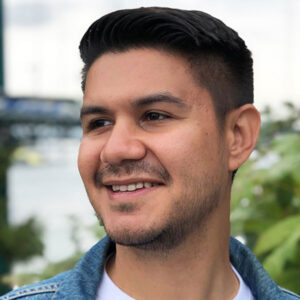 Mohammed Rafi Arefin, assistant professor of geography at the University of British Columbia, is recognized both for his outstanding research on political ecologies of urban waste in the global North and South and for his unwavering commitment to environmental and climate justice. Dr. Arefin embodies the spirit of the Glenda Laws Award in his efforts to help establish a Centre for Climate Justice (CCJ) at UBC that connects the university with communities on the front lines of climate disruption. In addition to putting the university’s resources in service of diverse communities in British Columbia, the CCJ provides an activist network to advocate for substantive policy changes around issues of housing, sovereignty, and political freedoms. Dr. Arefin must also be recognized for his tireless efforts to bring international attention to the incarceration of political activists in Egypt ahead of the UN’s COP27 climate summit in Sharm el-Sheikh.
Mohammed Rafi Arefin, assistant professor of geography at the University of British Columbia, is recognized both for his outstanding research on political ecologies of urban waste in the global North and South and for his unwavering commitment to environmental and climate justice. Dr. Arefin embodies the spirit of the Glenda Laws Award in his efforts to help establish a Centre for Climate Justice (CCJ) at UBC that connects the university with communities on the front lines of climate disruption. In addition to putting the university’s resources in service of diverse communities in British Columbia, the CCJ provides an activist network to advocate for substantive policy changes around issues of housing, sovereignty, and political freedoms. Dr. Arefin must also be recognized for his tireless efforts to bring international attention to the incarceration of political activists in Egypt ahead of the UN’s COP27 climate summit in Sharm el-Sheikh.
E. Willard and Ruby S. Miller Award
Recognizing members of AAG who have made truly outstanding contributions to the geographic field due to their special competence in teaching or research.
Soe W. Myint
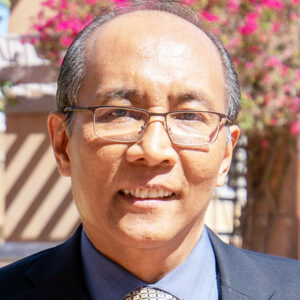 Soe W. Myint, Meadows Endowed Chair Professor, Texas State University, is an internationally recognized scholar who holds the Fulbright Canada Research Chair, has earned recognition from the Canadian Association of Geographers, and is an editor or editorial board member of well recognized remote sensing, GIS, and ecology journals. Dr. Myint possesses a long list of well-cited publications and is acknowledged as one of the most influential researchers in the fields of remote sensing and GIS to address environmental issues in urban, forest, and coastal ecosystems advancing understanding of environmental equity in cities. Dr. Myint is recipient of multiple grants from top national research organizations; a dedicated mentor to geography graduate, undergraduate, and postdoctoral students; and an advocate for diversity and inclusion in the discipline. He has served as a member or chair of over 60 PhD committees and has made outstanding contributions to the discipline as a member of the AAG through his exemplary research, teaching, and service.
Soe W. Myint, Meadows Endowed Chair Professor, Texas State University, is an internationally recognized scholar who holds the Fulbright Canada Research Chair, has earned recognition from the Canadian Association of Geographers, and is an editor or editorial board member of well recognized remote sensing, GIS, and ecology journals. Dr. Myint possesses a long list of well-cited publications and is acknowledged as one of the most influential researchers in the fields of remote sensing and GIS to address environmental issues in urban, forest, and coastal ecosystems advancing understanding of environmental equity in cities. Dr. Myint is recipient of multiple grants from top national research organizations; a dedicated mentor to geography graduate, undergraduate, and postdoctoral students; and an advocate for diversity and inclusion in the discipline. He has served as a member or chair of over 60 PhD committees and has made outstanding contributions to the discipline as a member of the AAG through his exemplary research, teaching, and service.
J. Warren Nystrom Award
Recognizes a distinguished paper based upon a recent dissertation in geography.
Changzhen Wang, Louisiana State University, “Overlapping Cancer Service Areas: Delineation and Implications”
Learn more about the J. Warren Nystrom Award
AAG Award for Bachelor’s Program Excellence
This award recognizes excellence in undergraduate geography programs at U.S. colleges and universities. The award honors non-Ph.D. granting geography programs at the associate, baccalaureate, and master levels in alternating years. AAG recognizes that these programs play an important role in educating future geographers and promoting the discipline to a wider world, but that they tend not to be included in national rankings within the Academy.
The University of Wisconsin – Eau Claire
The Geography and Anthropology Program at The University of Wisconsin – Eau Claire is home to ten tenured and tenure-track faculty, three instructors, a geospatial facilitator, and a department coordinator and offers four distinct majors (B.A. and B.S. degrees in Comprehensive Environmental Geography; Geography; Geospatial Analysis and Technology; and, Transnational Geographies), a minor in Geography, and three certificates (Cartography and Geovisualization; Geospatial; and, Urban and Regional Planning). A dynamic and evolving curriculum that centers on immersive and field-based learning supports these degrees and credentials and has enabled the department to extend geospatial technologies and methodologies into other programs. The program supports undergraduate research opportunities in local and international contexts that have propelled high levels of student participation in a variety of conferences, some of which the department has hosted. These high-impact learning experiences have facilitated students’ pursuit of advanced degrees in geography and participation in geography-related professions. The department has also sought to build a more diverse student body by taking the initiative to integrate equity, diversity, and inclusivity into its courses and departmental policies. This exemplary program has been fueled by faculty members’ active scholarly production, often involving students, and by student enthusiasm for geographic education. One final aspect marking the excellence of this program is the active Geography and Anthropology Club that contributes to the Humanitarian OpenStreetMap Team’s Missing Maps project, which puts into practice the department’s mission to “engage in local to global community issues.”
Honorable Mention: Samford University
The Geography and Sociology Program at Samford University is composed of four full-time and one adjunct faculty and offers two majors (B.S. in Geography and B.S. in Geography with a GIS concentration), three minors (Environmental Studies; Geography; and, Race, Ethnicity, and Social Justice), and a GIS-certification for non-majors. The program has experienced change at the university level and through its merger with another department. It has leveraged these transitions to focus on cultivating a community of care among faculty in the department in student-faculty collaborations and establishing vital connections between the geography program and the wider university, linking the department’s faculty to institutional governance and its courses to the university’s core curriculum. Samford’s program is committed to high-quality instruction as evidenced by faculty commitment to continued professional development and growth as well as by an especially impressive series of university- and national-level teaching awards. The department’s dedication to community engagement has also been outstanding. This includes faculty members’ leadership in study away programming, development of county-level data monitoring tools for the COVID-19 pandemic, and public and engaged scholarship in multiple that have together promoted geography education and demonstrated its contributions to facing challenges in the wider world. This impressive record of engagement is also attended by a commitment to undergraduate education through personalized mentorship and undergraduate research activities that have culminated in consistent student involvement in Geography and its allied professions.
Learn more about the Program Excellence Award
2023 AAG Meridian Book Award for Outstanding Scholarly Work in Geography
Awarded for a book written by a geographer that makes an unusually important contribution to advancing the science and art of geography.
Karen Culcasi
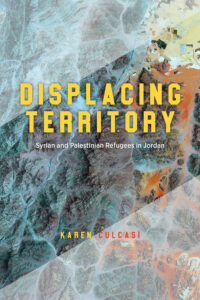 Displacing Territory: Syrian and Palestinian Refugees in Jordan by Karen Culcasi (University of Chicago Press, 2023) presents a powerful and innovative response to the global crisis of forced displacement. Culcasi argues against framing the “refugee crisis” via the perspective and priorities of the Global North, instead setting her analysis in the Southwest Asia and North Africa region. Her focus on Jordanian refugee policy and the lived experience of refugees creates a provocative reframing of questions about migration and displacement, read against the central themes of power, territory, and place.
Displacing Territory: Syrian and Palestinian Refugees in Jordan by Karen Culcasi (University of Chicago Press, 2023) presents a powerful and innovative response to the global crisis of forced displacement. Culcasi argues against framing the “refugee crisis” via the perspective and priorities of the Global North, instead setting her analysis in the Southwest Asia and North Africa region. Her focus on Jordanian refugee policy and the lived experience of refugees creates a provocative reframing of questions about migration and displacement, read against the central themes of power, territory, and place.
Culcasi’s engaging and forceful narrative is based on extensive research that encompasses the conceptual state-territory nexus and the more ambiguous imaginings of spaces including the refugee camps in Jordan. The overall product is an urgent book that represents a significant contribution to political geography, migration, and postcolonial studies. The writing is approachable, compelling, and richly innovative, and is a clear-sighted challenge to contemporary geopolitical imaginaries.
Honorable Mention: Sara Safransky
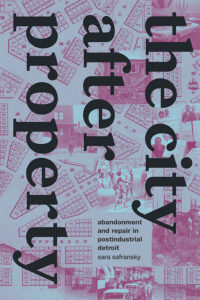 The City after Property: Abandonment and Repair in Postindustrial Detroit by Sara Safransky (Duke University Press, 2023) begins with a paradox: Detroit’s residents face foreclosures and evictions amidst a crisis of land abandonment. Safransky answers this paradox by weaving theoretically rich insights with detailed research, resulting in a rich account of urban property, racial capitalism, and deindustrialization. Safransky orients geographical scholarship to the possibilities of urban space outside dominant property regimes and centers the work of Black Detroit residents in confronting the challenges to their community.
The City after Property: Abandonment and Repair in Postindustrial Detroit by Sara Safransky (Duke University Press, 2023) begins with a paradox: Detroit’s residents face foreclosures and evictions amidst a crisis of land abandonment. Safransky answers this paradox by weaving theoretically rich insights with detailed research, resulting in a rich account of urban property, racial capitalism, and deindustrialization. Safransky orients geographical scholarship to the possibilities of urban space outside dominant property regimes and centers the work of Black Detroit residents in confronting the challenges to their community.
Safransky’s compelling book is beautifully written and highlights the capacity of urban geography to address contemporary struggles around property and belonging. Her research looks toward futures beyond abandonment, highlighting the contradictions of scarcity amidst abundance that characterizes capitalist policy regimes.
Learn more about the Meridian Book Award
2023 AAG Globe Book Award for Public Understanding of Geography
Given for a book written or co-authored by a geographer that conveys most powerfully the nature and importance of geography to the non-academic world.
Earth, Ice, Bone, Blood: Permafrost and Extinction in the Russian Arctic by Charlotte Wrigley (University of Minnesota Press, 2023) is the first of its kind in that it takes a largely unstudied substance – permafrost – and applies it to one of the most pressing issues of the Anthropocene, extinction. The book considers how permafrost disrupts the normative definition of extinction by way of its becoming discontinuous – not just materially, but as a heterogenous and dynamical social category that has implications for all life on Earth. By situating the study in the Russian Arctic, the book also encompasses the fraught history and crucial ecological future of a nation that comprises 65% permafrost.
Honorable Mentions:
Jared D. Margulies
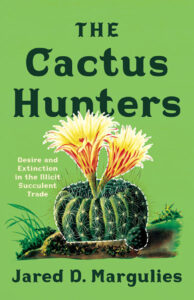 The Cactus Hunters: Desire and Extinction in the Illicit Succulent Trade by Jared D. Margulies (University of Minnesota Press, 2023) delves into the world of global succulent collecting to explore how and why some of the most passionate lovers of these plants engage in their illicit trade. Margulies examines how the desires of collectors can threaten the very existence of the species they seek out. The book develops a political ecology of desire to interrogate the close relations between our unconscious and conscious selves and the wider ecological web of life.
The Cactus Hunters: Desire and Extinction in the Illicit Succulent Trade by Jared D. Margulies (University of Minnesota Press, 2023) delves into the world of global succulent collecting to explore how and why some of the most passionate lovers of these plants engage in their illicit trade. Margulies examines how the desires of collectors can threaten the very existence of the species they seek out. The book develops a political ecology of desire to interrogate the close relations between our unconscious and conscious selves and the wider ecological web of life.
Colin McFarlane
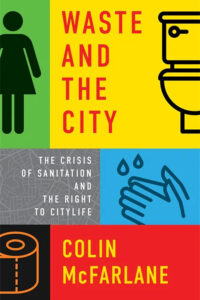 Waste and the City: The Crisis of Sanitation and the Right to Citylife by Colin McFarlane (Verso, 2023) builds a compelling argument for addressing the worldwide inequality in sanitation through a focus on five key areas: people, things, life, protest, and allocation. McFarlane argues that access to sanitation is fundamental not only to reducing poverty and inequality but also to “citylife,” the right to a livable urban life.
Waste and the City: The Crisis of Sanitation and the Right to Citylife by Colin McFarlane (Verso, 2023) builds a compelling argument for addressing the worldwide inequality in sanitation through a focus on five key areas: people, things, life, protest, and allocation. McFarlane argues that access to sanitation is fundamental not only to reducing poverty and inequality but also to “citylife,” the right to a livable urban life.
2023 AAG John Brinkerhoff Jackson Prize
Encourages and rewards American geographers who write books about the United States which convey the insights of professional geography in language that is both interesting and attractive to lay readers.
Michael Dear
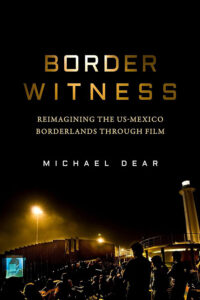 Border Witness: Re-imagining the U.S.-Mexico Borderlands Through Film by Michael Dear (University of California Press, 2023) is a masterfully written book that uses film to narrate the human and landscape geographies of the US-Mexico border region. It convinces the reader to consider “border film” a vibrant genre and reviews a century of film to illuminate the communities, spaces, and identities that emerge in a dynamic geographical zone. Both academics and non-academics will appreciate Dear’s thorough research, insights on timely issues, nice illustrations, and wonderful prose. This is a book that is only possible when decades of research and fieldwork slowly marinate into a rich, deep study.
Border Witness: Re-imagining the U.S.-Mexico Borderlands Through Film by Michael Dear (University of California Press, 2023) is a masterfully written book that uses film to narrate the human and landscape geographies of the US-Mexico border region. It convinces the reader to consider “border film” a vibrant genre and reviews a century of film to illuminate the communities, spaces, and identities that emerge in a dynamic geographical zone. Both academics and non-academics will appreciate Dear’s thorough research, insights on timely issues, nice illustrations, and wonderful prose. This is a book that is only possible when decades of research and fieldwork slowly marinate into a rich, deep study.
Kevin Patrick
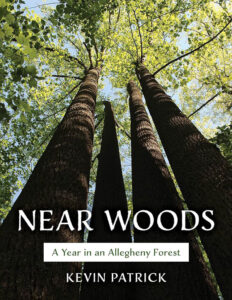 Near Woods: A Year in an Allegheny Forest by Kevin Patrick (Rowman & Littlefield, Stackpole Books Division, 2023) creates a wonderfully informed, nuanced, and thoughtful meditation on a small patch of woods outside Indiana, PA. Inspired by Thoreau’s Walden, Patrick explores the relationship between people and place, weaving together natural history, cultural history, the seasons, and his own reflections. The book demonstrates that a good geographer can take the most unassuming landscape and spin a tale about it, offering deep insights about connections that transcend time and space. The book is presented in an easy and enjoyable prose style, and it is accompanied by beautiful and evocative color photographs.
Near Woods: A Year in an Allegheny Forest by Kevin Patrick (Rowman & Littlefield, Stackpole Books Division, 2023) creates a wonderfully informed, nuanced, and thoughtful meditation on a small patch of woods outside Indiana, PA. Inspired by Thoreau’s Walden, Patrick explores the relationship between people and place, weaving together natural history, cultural history, the seasons, and his own reflections. The book demonstrates that a good geographer can take the most unassuming landscape and spin a tale about it, offering deep insights about connections that transcend time and space. The book is presented in an easy and enjoyable prose style, and it is accompanied by beautiful and evocative color photographs.
AAG Council Award for Best Student Paper at a Regional Division Meeting
Encourages student participation at AAG Regional Division meetings and supports their attendance at the AAG Annual Meeting.
Association of Pacific Coast Geographers
- Caitlyn Linehan, Best Graduate Student Paper
- Chris Guo, Best Undergraduate Student Paper
East Lakes
- Christine Calleja, Best Graduate Student Paper
- Sandra Johnson, Best Undergraduate Student Paper
Great Plains/Rocky Mountains
- Khuong Tran, Best Graduate Student Paper
Middle States
- Veronica Gomes, Best Graduate Student Paper
- Jackie Ganter, Best Undergraduate Student Paper
New England/St. Lawrence Valley (NESTVAL)
- Maddy Kroot, Best Graduate Student Paper
- Enrique de la Rosa, Best Undergraduate Student Paper
Southeast Division (SEDAAG)
- Ryleigh Choplin, Best Undergraduate Student Paper
Southwest Division (SWAAG)
- Chad Ramos, Best Graduate Student Paper
- Tyler Pursch, Best Undergraduate Student Paper
West Lakes
- Esther Acheampong, Best Graduate Student Paper
- Lily Baird, Best Undergraduate Student Paper
AAG Best Paper Awards in Geography & Entrepreneurship
Sponsored by the Ewing Marion Kauffman Foundation, these two annual awards recognize promising research studying geography and entrepreneurship. Research that has direct practical implications and addresses pressing environmental, economic and/or social problems is especially appropriate for these awards. One award is given to a student, practitioner or faculty member, and one award is given to an undergraduate or graduate student.
-
Christine Beckman, Best Paper
-
Joshua Barrett, Best Student Paper
Marble Fund Award for Innovative Master’s Research in Quantitative Geography
This award recognizes excellence in academic performance for the best research in quantitative geography leading to the master’s degree. Two awards will be issued each year. The award, which is not limited to degrees awarded in the United States, is named for Dr. Duane Marble, creator of the Marble Fund, and instrumental in the development of GIS as a scientific academic endeavor.
-
Leidy Carolina Fernandez Peña, Universidad Nacional de Colombia
-
Xiaoqi Bao, University of Washington
Honorable Mention
-
José Arturo Jasso Chávez, McGill University
-
Talula Pontuti, University of Utah
Marble-Boyle Undergraduate Achievement Award in Geographic Science
Recognizes excellence in academic performance by undergraduate students from the U.S. and Canada who are putting forth a strong effort to bridge geographic science and computer science as well as to encourage other students to embark upon similar programs.
-
Teagan Duenkel, Florida Atlantic University
-
Cecelia Kaufmann, Macalester College
-
Liam Smith, Middlebury College
AAG Darrel Hess Community College Geography Scholarships
Awarded to outstanding students from community colleges, junior colleges, city colleges, or two-year educational institutions who will be transferring as geography majors to four-year universities receive support and recognition from this scholarship program, provided by Darrel Hess of the City College of San Francisco since 2006.
-
Adrian Asensio-Arkin, transferring from Oakton Community College to University of Illinois at Urbana-Champaign
-
Caitlin Berry, transferring from Pasadena City College to University of California, Santa Barbara
-
Jayce Klein, transferring from Arapahoe Community College to University of Colorado Boulder
AAG Research Grants
Supports direct costs for fieldwork and research.
-
Jiannan Cai, The Chinese University of Hong Kong
-
Scott Warren, Independent Researcher
-
Daniel Warshawsky, Wright State University
AAG Dissertation Research Grants
Supports for doctoral dissertation Research for Ph.D. candidates of any geographic specialty
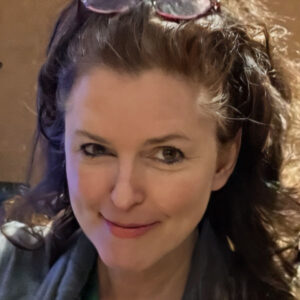 Dr. Karen Barton, professor in the Department of Geography, GIS, & Sustainability at the University of Northern Colorado, is this year’s recipient of the the Harm de Blij Award for Excellence in Undergraduate Geography Teaching. The selection committee felt that all applicants were outstanding, however, Dr. Barton’s unparalleled commitment to international field education stood out as exemplary. She has led field courses to Nepal, Iceland, Guyana, Nicaragua, Peru, Kenya, and Norway in addition to points within the United States. She includes service learning in her field excursions that help students understand their place in the world, and most impressively, Dr. Barton has assembled funds for these courses from a broad range of sources, allowing a diverse group of students to participate in these impactful trips. Dr. Barton has been recognized with four awards for her teaching excellence on campus. Her peer recommendations indicate a sustained commitment to undergraduate education and experiential learning over her career as a geographer.
Dr. Karen Barton, professor in the Department of Geography, GIS, & Sustainability at the University of Northern Colorado, is this year’s recipient of the the Harm de Blij Award for Excellence in Undergraduate Geography Teaching. The selection committee felt that all applicants were outstanding, however, Dr. Barton’s unparalleled commitment to international field education stood out as exemplary. She has led field courses to Nepal, Iceland, Guyana, Nicaragua, Peru, Kenya, and Norway in addition to points within the United States. She includes service learning in her field excursions that help students understand their place in the world, and most impressively, Dr. Barton has assembled funds for these courses from a broad range of sources, allowing a diverse group of students to participate in these impactful trips. Dr. Barton has been recognized with four awards for her teaching excellence on campus. Her peer recommendations indicate a sustained commitment to undergraduate education and experiential learning over her career as a geographer.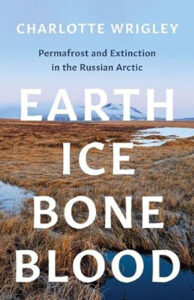
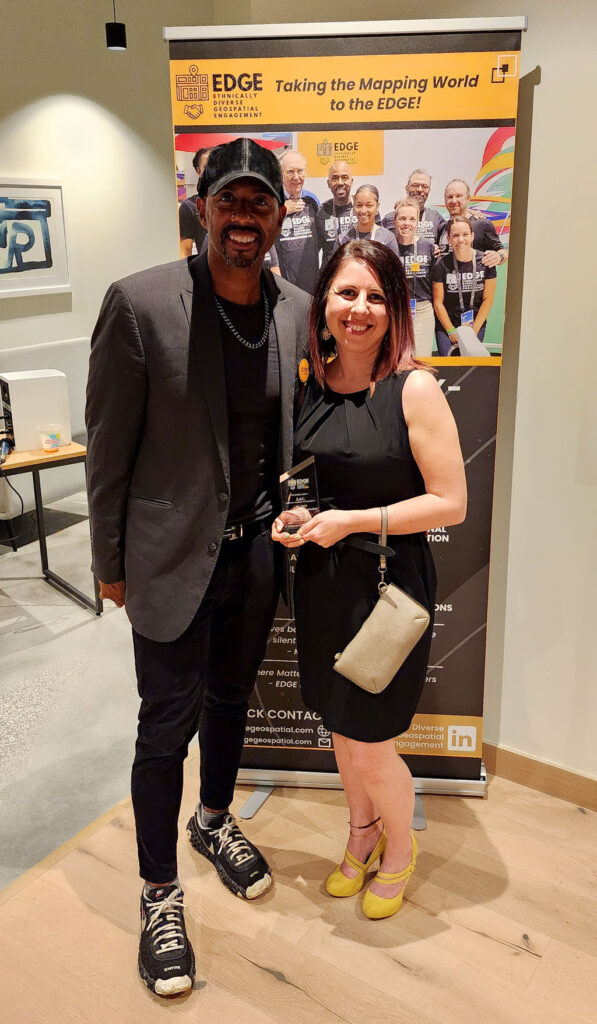
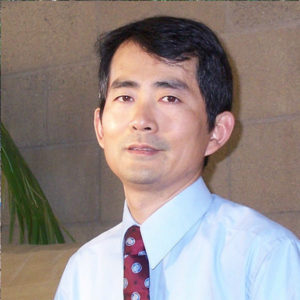 The 2023 AAG Distinguished Scholarship Honors goes to Li An, Professor of Geography at San Diego State University and fellow of the AAG and the American Association for Advancement of Science. An is an internationally recognized geographer known for his pioneering contributions to agent-based modeling and space-time analysis that strengthen our ability to understand spatiotemporal variability of complex human-environmental processes. His work is motivated by his longing for peace and strength in human-environment interactions through improved sustainability—a motivation inspired by his name: Li, his first name, means strength or power, and An, his last name, means peace or safety. An has contributed to this mission by using geovisualization, modeling, and simulation to bridge the division between social science and ecological modeling that previously limited the capacity to address environmental issues that are inherently human influenced, for example, panda conservation and invasive species.
The 2023 AAG Distinguished Scholarship Honors goes to Li An, Professor of Geography at San Diego State University and fellow of the AAG and the American Association for Advancement of Science. An is an internationally recognized geographer known for his pioneering contributions to agent-based modeling and space-time analysis that strengthen our ability to understand spatiotemporal variability of complex human-environmental processes. His work is motivated by his longing for peace and strength in human-environment interactions through improved sustainability—a motivation inspired by his name: Li, his first name, means strength or power, and An, his last name, means peace or safety. An has contributed to this mission by using geovisualization, modeling, and simulation to bridge the division between social science and ecological modeling that previously limited the capacity to address environmental issues that are inherently human influenced, for example, panda conservation and invasive species.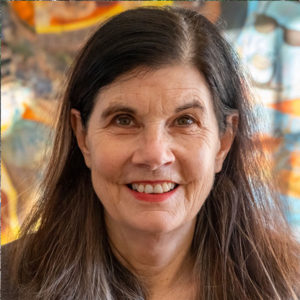 The 2023 AAG Distinguished Scholarship Honors is awarded to Geraldine Pratt for her contributions to the fields of feminist geography, economic geography, and labor. She does so by demonstrating how labor markets work, tracing the relationships between domestic workers in Canada and their transnational families, as well as the debates over the ethics of care at home and abroad. Pratt has served as an inspiration to human geographers, demonstrating that dedication to ethical collaborations can also lead to
The 2023 AAG Distinguished Scholarship Honors is awarded to Geraldine Pratt for her contributions to the fields of feminist geography, economic geography, and labor. She does so by demonstrating how labor markets work, tracing the relationships between domestic workers in Canada and their transnational families, as well as the debates over the ethics of care at home and abroad. Pratt has served as an inspiration to human geographers, demonstrating that dedication to ethical collaborations can also lead to 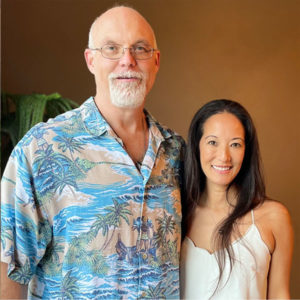 The 2023 AAG Distinguished Teaching Honors is awarded to John Strait and Ava Fujimoto-Strait for their joint teaching, mentoring, and pedagogical accomplishments at Sam Houston State University (SHSU). As Pat Harris, Chair of SHSU’s Department of Environmental and Geosciences stated, “Individually, John and Ava are great ambassadors for geography … it is hard to talk about one without talking about the other because their course and teaching styles are so intertwined.” Not only is the breadth of their teaching impressive, but they also offer innovative instruction that is engaging, place-based, and student-centered. Collectively, they have taught several different courses at SHSU, many of which are recognized for their academic community engagement, due to their emphasis on community partnerships and service-based learning opportunities. Since 2006, they have coordinated and co-directed a host of immersive field courses, both within the United States and abroad. These field courses offer students hands-on interdisciplinary experiences in such diverse locales as the Mississippi Delta, Hawaii, Spain, Italy, Morocco, as well as other locations. These transformative travel experiences, in conjunction with field-based activities incorporated within their traditional in-class courses, directly immerse students into relevant subject matter, ultimately creating strong bonds and facilitating a passion for geographic inquiry.
The 2023 AAG Distinguished Teaching Honors is awarded to John Strait and Ava Fujimoto-Strait for their joint teaching, mentoring, and pedagogical accomplishments at Sam Houston State University (SHSU). As Pat Harris, Chair of SHSU’s Department of Environmental and Geosciences stated, “Individually, John and Ava are great ambassadors for geography … it is hard to talk about one without talking about the other because their course and teaching styles are so intertwined.” Not only is the breadth of their teaching impressive, but they also offer innovative instruction that is engaging, place-based, and student-centered. Collectively, they have taught several different courses at SHSU, many of which are recognized for their academic community engagement, due to their emphasis on community partnerships and service-based learning opportunities. Since 2006, they have coordinated and co-directed a host of immersive field courses, both within the United States and abroad. These field courses offer students hands-on interdisciplinary experiences in such diverse locales as the Mississippi Delta, Hawaii, Spain, Italy, Morocco, as well as other locations. These transformative travel experiences, in conjunction with field-based activities incorporated within their traditional in-class courses, directly immerse students into relevant subject matter, ultimately creating strong bonds and facilitating a passion for geographic inquiry.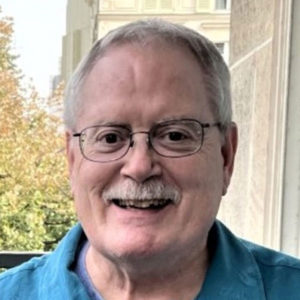 The American Association of Geographers awards AAG Lifetime Achievement Honors to Dr. David R. Butler. Over his 37-year academic career, Butler’s influential work at the interface of geomorphology and biogeography has advanced knowledge and understanding in physical geography. He has displayed exemplary devotion to teaching and mentoring both at the college and K-12 levels, putting diversity and equity principles at the forefront of his program. He has promoted and strengthened physical geography through his scholarship and his leadership and service.
The American Association of Geographers awards AAG Lifetime Achievement Honors to Dr. David R. Butler. Over his 37-year academic career, Butler’s influential work at the interface of geomorphology and biogeography has advanced knowledge and understanding in physical geography. He has displayed exemplary devotion to teaching and mentoring both at the college and K-12 levels, putting diversity and equity principles at the forefront of his program. He has promoted and strengthened physical geography through his scholarship and his leadership and service.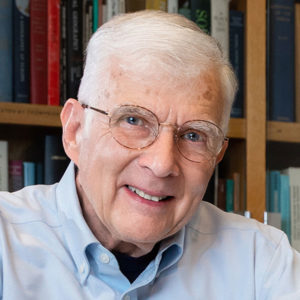 The American Association of Geographers awards AAG Lifetime Achievement Honors to Mark Monmonier. Over the course of five decades, he has made outstanding contributions to geographic research, most notably in the fields of cartography and geographic communication. He also has an extensive record of distinctive leadership at national and international levels, and in service to the discipline of geography and the AAG. He is a valued colleague and esteemed mentor and inspiration to hundreds of students, many of whom have become leaders in the academic community, government agencies, and industry.
The American Association of Geographers awards AAG Lifetime Achievement Honors to Mark Monmonier. Over the course of five decades, he has made outstanding contributions to geographic research, most notably in the fields of cartography and geographic communication. He also has an extensive record of distinctive leadership at national and international levels, and in service to the discipline of geography and the AAG. He is a valued colleague and esteemed mentor and inspiration to hundreds of students, many of whom have become leaders in the academic community, government agencies, and industry.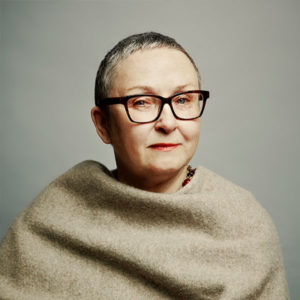 The 2023 AAG Lifetime Achievement Honors is awarded to Linda Peake for her scholarly contributions to feminist and urban geographies and for a career dedicated to extending equity, diversity, and inclusion at her institution (York University, Canada) and across the discipline of geography.
The 2023 AAG Lifetime Achievement Honors is awarded to Linda Peake for her scholarly contributions to feminist and urban geographies and for a career dedicated to extending equity, diversity, and inclusion at her institution (York University, Canada) and across the discipline of geography. William Wyckoff, a recipient of the AAG’s Lifetime Achievement Honors, has played a leading role in research focusing on the historical evolution of interactions among people and places in the American West. While serving on the faculty of Montana State University since 1986, Wyckoff conducted a continually evolving set of research projects focusing on several important segments of this vast territory and its diverse population. Some of his research focused on specific places, while other projects were broader regional examinations. Wyckoff’s research built on traditional historical geography themes and approaches, but he employed new perspectives and techniques to provide novel insights into the complex interactions among people and places across the region.
William Wyckoff, a recipient of the AAG’s Lifetime Achievement Honors, has played a leading role in research focusing on the historical evolution of interactions among people and places in the American West. While serving on the faculty of Montana State University since 1986, Wyckoff conducted a continually evolving set of research projects focusing on several important segments of this vast territory and its diverse population. Some of his research focused on specific places, while other projects were broader regional examinations. Wyckoff’s research built on traditional historical geography themes and approaches, but he employed new perspectives and techniques to provide novel insights into the complex interactions among people and places across the region.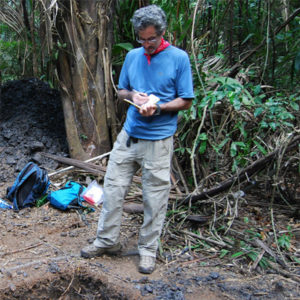 Dr. Timothy Beach is an internationally recognized leader in soils, wetlands, geomorphology, and geoarchaeology through hundreds of publications. His research — deriving from his soils lab at UT Austin and a range of field sites across the world including Guatemala, Mexico, Belize, Turkey, Italy, and the USA — has substantially elevated our understanding of wetlands, geomorphology, human interactions with soils, and global change, especially relating to Maya civilization. Beach is recognized with major awards from several disciplines, universities, and numerous invited lectures including at the Vatican. The awards include the G.K. Gilbert Award and Ellen Mosely-Thompson Paper of the Year Award from the American Association of Geographers (AAG), the Kirk Bryan Award from the Geological Society of America (GSA), the Carl O. Sauer Distinguished Scholarship Award from the Conference of Latin American Geography, and the Fryxell Award from the Society for American Archaeology (SAA). Beach also received fellowships from Guggenheim and Dumbarton Oaks (twice) and is an elected Fellow of the American Association for the Advancement of Science. The University of Texas at Austin honored Dr. Beach’s research with the C.B. Smith Centennial Chair in U.S.-Mexico Relations. In addition, Georgetown University awarded Tim Beach with the Distinguished Research Award and the Georgetown School of Foreign Service Professor of the Year Teaching Award. Beach is also an Alumnus of the Year at California State University-Chico. An active member over four decades, Tim Beach has provided outstanding leadership and service to the AAG, most notably as chair of the Geomorphology Specialty Group and co-founder of the Paleoenvironmental Change Specialty Group. He has similarly held leadership roles in the GSA, SAA, and the American Quaternary Association. Beach’s long record of service to his discipline also includes the scores of special sessions that he organized or co-organized, that have produced special edited journal issues.
Dr. Timothy Beach is an internationally recognized leader in soils, wetlands, geomorphology, and geoarchaeology through hundreds of publications. His research — deriving from his soils lab at UT Austin and a range of field sites across the world including Guatemala, Mexico, Belize, Turkey, Italy, and the USA — has substantially elevated our understanding of wetlands, geomorphology, human interactions with soils, and global change, especially relating to Maya civilization. Beach is recognized with major awards from several disciplines, universities, and numerous invited lectures including at the Vatican. The awards include the G.K. Gilbert Award and Ellen Mosely-Thompson Paper of the Year Award from the American Association of Geographers (AAG), the Kirk Bryan Award from the Geological Society of America (GSA), the Carl O. Sauer Distinguished Scholarship Award from the Conference of Latin American Geography, and the Fryxell Award from the Society for American Archaeology (SAA). Beach also received fellowships from Guggenheim and Dumbarton Oaks (twice) and is an elected Fellow of the American Association for the Advancement of Science. The University of Texas at Austin honored Dr. Beach’s research with the C.B. Smith Centennial Chair in U.S.-Mexico Relations. In addition, Georgetown University awarded Tim Beach with the Distinguished Research Award and the Georgetown School of Foreign Service Professor of the Year Teaching Award. Beach is also an Alumnus of the Year at California State University-Chico. An active member over four decades, Tim Beach has provided outstanding leadership and service to the AAG, most notably as chair of the Geomorphology Specialty Group and co-founder of the Paleoenvironmental Change Specialty Group. He has similarly held leadership roles in the GSA, SAA, and the American Quaternary Association. Beach’s long record of service to his discipline also includes the scores of special sessions that he organized or co-organized, that have produced special edited journal issues.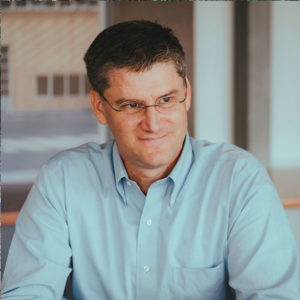 Dr. Martin Doyle is well known as a physical geographer, and he’s also very comfortable in the realms of environmental policy, finance, and aquatic ecology. He has won major awards for his ground-breaking research, including a Guggenheim Fellowship, the AAG’s Meridian Book Award for The Source: How Rivers Made America and America Remade its Rivers and the AAG’s Geomorphology Specialty Group’s G.K. Gilbert Award. He is a strong mentor, including collaborating with and supporting female river scientists, and through his role as Associate Dean at Duke University, where he has been an advocate for female scholars and scholars of color. He served in President Obama’s Department of the Interior, and on the US Army Science Board. He is widely known as a “go-to” figure for interviews in the media, and is an important spokesperson for watershed protection and restoration. He is known as a powerful mentor of students as well as early-career scientists, and although no longer in a geography department, he remains a member and strong supporter of the AAG and the Geomorphology Specialty Group.
Dr. Martin Doyle is well known as a physical geographer, and he’s also very comfortable in the realms of environmental policy, finance, and aquatic ecology. He has won major awards for his ground-breaking research, including a Guggenheim Fellowship, the AAG’s Meridian Book Award for The Source: How Rivers Made America and America Remade its Rivers and the AAG’s Geomorphology Specialty Group’s G.K. Gilbert Award. He is a strong mentor, including collaborating with and supporting female river scientists, and through his role as Associate Dean at Duke University, where he has been an advocate for female scholars and scholars of color. He served in President Obama’s Department of the Interior, and on the US Army Science Board. He is widely known as a “go-to” figure for interviews in the media, and is an important spokesperson for watershed protection and restoration. He is known as a powerful mentor of students as well as early-career scientists, and although no longer in a geography department, he remains a member and strong supporter of the AAG and the Geomorphology Specialty Group.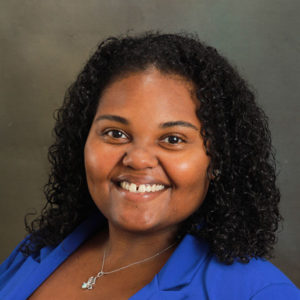 Dr. LaToya Eaves has established a record of transformative research, dynamic teaching, and dedicated mentoring in the field of geography. Her contributions to the fields of Black Geographies, Black feminism, queer geographies, and the U.S. South are particularly noteworthy. Dr. Eaves’ rigorous and accessible scholarship pushes geography as a discipline to engage with the importance of Black geographic thought and practices in the production of space and place. Her scholarship provides accessible entry points for students to engage with Black Geographies, and she has contributed foundational texts for scholars doing work within Black Geographies literature. Her research has been published in Geoforum, Dialogues in Human Geography, Gender, Place & Culture, The Professional Geographer, and Journal of Geography in Higher Education, among other journals and edited volumes. She has received numerous accolades within geography, including but not limited to Department of Geography’s Outstanding Faculty Teaching Award at the University of Tennessee, Knoxville, Academic Advancement Award by the Tennessee LGBT+ College Conference, the Ronald F. Abler Distinguished Service Honors by the AAG, and the Enhancing Diversity Award by the AAG. One of the founders of the Black Geographies Specialty Group, Dr. Eaves’ organization and caring mentorship has transformed the discipline of geography and provided a space and academic home for Black scholars and scholars of Black Geographies. She is a generous and caring mentor as well. Her reputation within the geography community broadly and within the Black Geographies community specifically speaks to her generous mentorship of students and junior scholars, much of which is invisible, uncompensated, and unrecognized work in institutional settings. She has been committed to recognizing and honoring senior Black scholars, organizing panels, special issues of journals, and award applications to assure that these senior scholars are recognized for their foundational contributions. Beyond the subfield of Black Geographies, Dr. Eaves has served the AAG in the roles of National Councilor, Treasurer and Chair of the Finance Committee. She also contributed to the AAG Harassment Free Task Force and the AAG Task Force on Diversifying the Curriculum in Geography, and she co-chaired the AAG New Orleans Featured Theme Committee. She has served as an editor for Dialogues in Human Geography and on numerous editorial boards.
Dr. LaToya Eaves has established a record of transformative research, dynamic teaching, and dedicated mentoring in the field of geography. Her contributions to the fields of Black Geographies, Black feminism, queer geographies, and the U.S. South are particularly noteworthy. Dr. Eaves’ rigorous and accessible scholarship pushes geography as a discipline to engage with the importance of Black geographic thought and practices in the production of space and place. Her scholarship provides accessible entry points for students to engage with Black Geographies, and she has contributed foundational texts for scholars doing work within Black Geographies literature. Her research has been published in Geoforum, Dialogues in Human Geography, Gender, Place & Culture, The Professional Geographer, and Journal of Geography in Higher Education, among other journals and edited volumes. She has received numerous accolades within geography, including but not limited to Department of Geography’s Outstanding Faculty Teaching Award at the University of Tennessee, Knoxville, Academic Advancement Award by the Tennessee LGBT+ College Conference, the Ronald F. Abler Distinguished Service Honors by the AAG, and the Enhancing Diversity Award by the AAG. One of the founders of the Black Geographies Specialty Group, Dr. Eaves’ organization and caring mentorship has transformed the discipline of geography and provided a space and academic home for Black scholars and scholars of Black Geographies. She is a generous and caring mentor as well. Her reputation within the geography community broadly and within the Black Geographies community specifically speaks to her generous mentorship of students and junior scholars, much of which is invisible, uncompensated, and unrecognized work in institutional settings. She has been committed to recognizing and honoring senior Black scholars, organizing panels, special issues of journals, and award applications to assure that these senior scholars are recognized for their foundational contributions. Beyond the subfield of Black Geographies, Dr. Eaves has served the AAG in the roles of National Councilor, Treasurer and Chair of the Finance Committee. She also contributed to the AAG Harassment Free Task Force and the AAG Task Force on Diversifying the Curriculum in Geography, and she co-chaired the AAG New Orleans Featured Theme Committee. She has served as an editor for Dialogues in Human Geography and on numerous editorial boards. Dr. A. Stewart Fotheringham has been described as the strongest researcher of his generation in quantitative geography and spatial analysis. He has been at the forefront of efforts to improve our understanding of spatially distributed phenomena, and of the social and environmental processes that operate in space and time. His publications on spatial interaction modeling have become the accepted authorities in the field for their theoretical and quantitative rigor and for the richness of their applications. Fotheringham has also significantly advanced our understanding of the problems of making statistical inference from spatial data across the health, social, and environmental sciences. More recently, his work on spatial process heterogeneity has led to powerful new insights from place-based analysis, a topic that he has pioneered through the development of geographically weighted regression and the creation of analogous versions of many standard statistical techniques. He has made these advances readily accessible to researchers in geography, and in the health, social, and environmental sciences more broadly, through software, tutorials, and workshops, and the development of appropriate inferential tests. He is a member of the U.S. National Academy of Sciences, and he has done much to promote geography and spatial science across the social sciences and internationally. He has been a long-time member of the American Association of Geographers despite his long periods at European universities, and he has been a regular attendee at AAG meetings and a contributor to geographical debates on both sides of the Atlantic. His research, including numerous papers in the Annals of the American Association of Geographers, is very heavily cited.
Dr. A. Stewart Fotheringham has been described as the strongest researcher of his generation in quantitative geography and spatial analysis. He has been at the forefront of efforts to improve our understanding of spatially distributed phenomena, and of the social and environmental processes that operate in space and time. His publications on spatial interaction modeling have become the accepted authorities in the field for their theoretical and quantitative rigor and for the richness of their applications. Fotheringham has also significantly advanced our understanding of the problems of making statistical inference from spatial data across the health, social, and environmental sciences. More recently, his work on spatial process heterogeneity has led to powerful new insights from place-based analysis, a topic that he has pioneered through the development of geographically weighted regression and the creation of analogous versions of many standard statistical techniques. He has made these advances readily accessible to researchers in geography, and in the health, social, and environmental sciences more broadly, through software, tutorials, and workshops, and the development of appropriate inferential tests. He is a member of the U.S. National Academy of Sciences, and he has done much to promote geography and spatial science across the social sciences and internationally. He has been a long-time member of the American Association of Geographers despite his long periods at European universities, and he has been a regular attendee at AAG meetings and a contributor to geographical debates on both sides of the Atlantic. His research, including numerous papers in the Annals of the American Association of Geographers, is very heavily cited. Dr. Nik Heynen’s sustained and exemplary record of research, mentorship, and service has left an enduring impact on the discipline of geography. Dr. Heynen’s scholarship has been transformational and field-defining in the areas of urban political ecology, abolition geographies and ecologies, and geographies of neoliberalism and racial capitalism. His work theorizes and demonstrates empirically how racialized processes of capitalism, white supremacy, and settler colonialism produce structurally unjust geographies and ecologies. His work centers Black scholars and their scholarship to create a social justice-oriented research agenda that produces not only rigorous, theoretically sophisticated scholarship but also practical, justice-centered work. Dr. Heynen’s scholarship is only surpassed by his commitment to his advocacy for reparations and service within the discipline. Dr. Heynen has served as part of the editorial collective at
Dr. Nik Heynen’s sustained and exemplary record of research, mentorship, and service has left an enduring impact on the discipline of geography. Dr. Heynen’s scholarship has been transformational and field-defining in the areas of urban political ecology, abolition geographies and ecologies, and geographies of neoliberalism and racial capitalism. His work theorizes and demonstrates empirically how racialized processes of capitalism, white supremacy, and settler colonialism produce structurally unjust geographies and ecologies. His work centers Black scholars and their scholarship to create a social justice-oriented research agenda that produces not only rigorous, theoretically sophisticated scholarship but also practical, justice-centered work. Dr. Heynen’s scholarship is only surpassed by his commitment to his advocacy for reparations and service within the discipline. Dr. Heynen has served as part of the editorial collective at 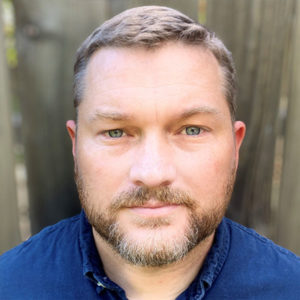 Dr. Reece Jones is Professor and the Chair of the Department of Geography and Environment at the University of Hawai‘i at Manoa. He has created influential research on borders and immigration and is dedicated to service within the AAG and the wider academic community. He is currently the Chair of the Local Organizing Committee for the 2024 Annual Meeting in Honolulu. He previously served as the president of the Political Geography Specialty Group (PGSG) of the AAG in 2013 and 2014, was the Secretary/Treasurer of the PGSG from 2011-2012, and served on the PGSG executive committee from 2009-2016. Reece has served the discipline of geography as the Editor-in-Chief of the journal
Dr. Reece Jones is Professor and the Chair of the Department of Geography and Environment at the University of Hawai‘i at Manoa. He has created influential research on borders and immigration and is dedicated to service within the AAG and the wider academic community. He is currently the Chair of the Local Organizing Committee for the 2024 Annual Meeting in Honolulu. He previously served as the president of the Political Geography Specialty Group (PGSG) of the AAG in 2013 and 2014, was the Secretary/Treasurer of the PGSG from 2011-2012, and served on the PGSG executive committee from 2009-2016. Reece has served the discipline of geography as the Editor-in-Chief of the journal 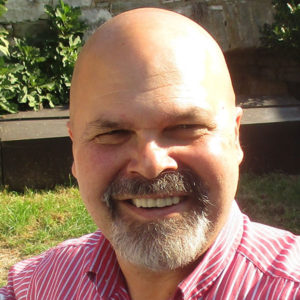 David H. “Dave” Kaplan is well-known both nationally and internationally for his work in political and urban geography. He has written or edited 14 books, ranging from sophisticated analyses of ethnicity and nationalism to textbooks on urban geography. He has published about 70 journal articles and book chapters, given over 80 invited presentations, and is editor-in-chief for the journal
David H. “Dave” Kaplan is well-known both nationally and internationally for his work in political and urban geography. He has written or edited 14 books, ranging from sophisticated analyses of ethnicity and nationalism to textbooks on urban geography. He has published about 70 journal articles and book chapters, given over 80 invited presentations, and is editor-in-chief for the journal 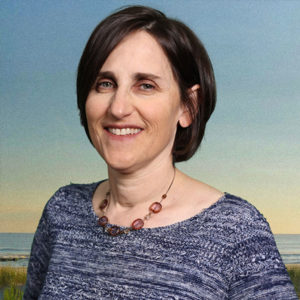 Robin Leichenko is an extremely creative, inquisitive, and giving academic and public scholar whose career has spanned economic and environmental geography, focusing over the past 20 years primarily on economic impacts and responses to climate change. She has been a professor at Rutgers University for over 25 years, where she has chaired 11 Ph.D. committees, served as department chair and graduate director, served as co-director of the Rutgers Climate Institute, and is currently Associate Dean of Social and Behavioral Sciences. She is an exemplary public scholar. She has served on multiple committees on responses to climate change, including serving as a review editor on the Fifth Assessment Report of the Intergovernmental Panel on Climate Change (IPCC), serving as co-chair of the New York City Panel on Climate Change, and serving as co-lead of the Society and Economy Sector of the New York State Climate Impact Assessment. Dr. Leichenko’s research journey shows her inquisitiveness and willingness to try new things. Early in graduate school, she was an environmental geographer, but during her Ph.D. program at Penn State, she became focused on economic geography, obtaining a M.A. in Economics along with her Ph.D. in Geography. After coming to Rutgers, she began to return to environmental geography, but combined the work with her knowledge of economic systems. Her ability to speak the language of scholars and practitioners across the various fields focusing on climate change has helped her to make immense contributions both to the academic study of climate change and to the debate on public responses to it. She has also been very active in the AAG itself. Among other things, she was chair of the Economic Geography specialty group. She has also acted as a mentor to many early and mid-career geographers, particularly women. Overall, Robin Leichenko is a model geographer, unafraid to cross boundaries, who works both inside and outside the academy.
Robin Leichenko is an extremely creative, inquisitive, and giving academic and public scholar whose career has spanned economic and environmental geography, focusing over the past 20 years primarily on economic impacts and responses to climate change. She has been a professor at Rutgers University for over 25 years, where she has chaired 11 Ph.D. committees, served as department chair and graduate director, served as co-director of the Rutgers Climate Institute, and is currently Associate Dean of Social and Behavioral Sciences. She is an exemplary public scholar. She has served on multiple committees on responses to climate change, including serving as a review editor on the Fifth Assessment Report of the Intergovernmental Panel on Climate Change (IPCC), serving as co-chair of the New York City Panel on Climate Change, and serving as co-lead of the Society and Economy Sector of the New York State Climate Impact Assessment. Dr. Leichenko’s research journey shows her inquisitiveness and willingness to try new things. Early in graduate school, she was an environmental geographer, but during her Ph.D. program at Penn State, she became focused on economic geography, obtaining a M.A. in Economics along with her Ph.D. in Geography. After coming to Rutgers, she began to return to environmental geography, but combined the work with her knowledge of economic systems. Her ability to speak the language of scholars and practitioners across the various fields focusing on climate change has helped her to make immense contributions both to the academic study of climate change and to the debate on public responses to it. She has also been very active in the AAG itself. Among other things, she was chair of the Economic Geography specialty group. She has also acted as a mentor to many early and mid-career geographers, particularly women. Overall, Robin Leichenko is a model geographer, unafraid to cross boundaries, who works both inside and outside the academy.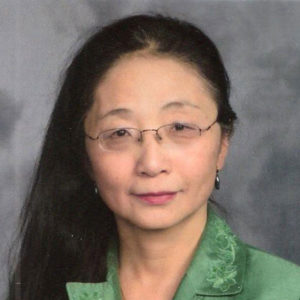 Dr. Wei Li is a highly productive researcher who has published well over 100 academic articles and 10 books, edited books and special issues of journals, and delivered more than 75 invited lectures, with many focusing on urban and ethnic geography as well as highly skilled migrations. She is most known for her work on ethnic and racial settlement patterns, where she coined the now widely known term ethnoburb. Her work is well-respected both nationally and internationally, and she has held various visiting positions both in the U.S. and internationally. Dr. Li has provided extensive service to the AAG, including leadership positions in the Ethnic Geography Specialty Group, and serving as National Councilor and on the JEDI task force as well as other diversity-related initiatives. Beyond her own valuable contributions, she is also exceptional in drawing attention to and applauding the contributions of others. Dr. Li also deserves praise for her exceptional work in mentoring and advising graduate students and junior colleagues, including an extensive record of co-presenting and co-authoring papers with her students.
Dr. Wei Li is a highly productive researcher who has published well over 100 academic articles and 10 books, edited books and special issues of journals, and delivered more than 75 invited lectures, with many focusing on urban and ethnic geography as well as highly skilled migrations. She is most known for her work on ethnic and racial settlement patterns, where she coined the now widely known term ethnoburb. Her work is well-respected both nationally and internationally, and she has held various visiting positions both in the U.S. and internationally. Dr. Li has provided extensive service to the AAG, including leadership positions in the Ethnic Geography Specialty Group, and serving as National Councilor and on the JEDI task force as well as other diversity-related initiatives. Beyond her own valuable contributions, she is also exceptional in drawing attention to and applauding the contributions of others. Dr. Li also deserves praise for her exceptional work in mentoring and advising graduate students and junior colleagues, including an extensive record of co-presenting and co-authoring papers with her students. Dr. Wenwen Li is a nationally recognized researcher at the forefront of geography, developing new methods for spatial pattern analysis and regionalization for solving real-world problems across disciplines. She is among the first to introduce classic inertia theory from physics to the measurement of spatial compactness patterns. Dr. Li has conducted innovative research on cyberinfrastructure, utilizing big data and artificial intelligence (AI) to enable geospatial intelligence for data-driven discovery and intelligent spatial decision making. For this
Dr. Wenwen Li is a nationally recognized researcher at the forefront of geography, developing new methods for spatial pattern analysis and regionalization for solving real-world problems across disciplines. She is among the first to introduce classic inertia theory from physics to the measurement of spatial compactness patterns. Dr. Li has conducted innovative research on cyberinfrastructure, utilizing big data and artificial intelligence (AI) to enable geospatial intelligence for data-driven discovery and intelligent spatial decision making. For this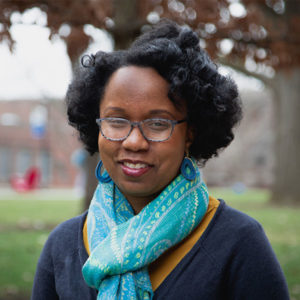 Dr. Priscilla McCutcheon has built an eminent record of innovative research, impactful teaching, and dedicated service in geography. Dr. McCutcheon’s work in Black food geographies and land politics weaves together geographies of religious organizations, environmental justice, land/food access, and Black geographies to interrogate the structural inequalities and racial disparities in land ownership, particularly in the U.S. South. Her scholarship on race and environment also highlights racially marginalized peoples as agentic actors rather than simply communities trapped in oppressive struggles. Dr. McCutcheon’s scholarship is an important and vital contribution to geography, food justice, and Black studies. Described as “one of the most important scholars of her generation,” Dr. McCutcheon’s research in many journals including
Dr. Priscilla McCutcheon has built an eminent record of innovative research, impactful teaching, and dedicated service in geography. Dr. McCutcheon’s work in Black food geographies and land politics weaves together geographies of religious organizations, environmental justice, land/food access, and Black geographies to interrogate the structural inequalities and racial disparities in land ownership, particularly in the U.S. South. Her scholarship on race and environment also highlights racially marginalized peoples as agentic actors rather than simply communities trapped in oppressive struggles. Dr. McCutcheon’s scholarship is an important and vital contribution to geography, food justice, and Black studies. Described as “one of the most important scholars of her generation,” Dr. McCutcheon’s research in many journals including 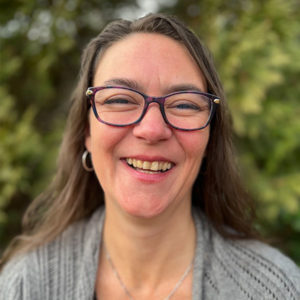 Dr. Lindsay Naylor is an outstanding researcher, teacher, and member of the AAG who is extremely qualified to become an Early/Mid-Career AAG Fellow. In the past seven years, she has published 27 articles, mainly as a first author, as well as a book, Fair Trade Rebels, published by the highly regarded University of Minnesota Press. This book won the 2020 Julian Minghi Distinguished Book Award of the Political Geography Specialty Group of the AAG. She also has a second book under contract with the University of Georgia. Her research focuses on food systems, bodies, care, and agriculture, concentrating on stories and research on material subjects in particular places, and often involves partnering with local community organizations. She is quickly emerging as one of the premier scholars in both political geography and the geographies of food and agriculture. In addition, she is a strong teacher, serves as the current graduate advisor for the Geography program at the University of Delaware, and has been extremely active in the AAG. As a graduate student, she was one of the founders of the Geographies of Food and Agriculture specialty group. Lindsay was instrumental in the AAG Covid-19 Rapid Response and with AAG staff and a committee of AAG members developed the graduate student learning skills program (she is the current chair), which has been a tremendous support system for our members. She is also active in the Political Geography Specialty Group (as a former board member) and as a former board member of the AAG Middle States Region, from which she was elected as a Regional Councilor to the AAG. In sum, in her career to date, Lindsay Naylor has added an enormous amount to the field of geography as a researcher, a colleague, and a mentor.
Dr. Lindsay Naylor is an outstanding researcher, teacher, and member of the AAG who is extremely qualified to become an Early/Mid-Career AAG Fellow. In the past seven years, she has published 27 articles, mainly as a first author, as well as a book, Fair Trade Rebels, published by the highly regarded University of Minnesota Press. This book won the 2020 Julian Minghi Distinguished Book Award of the Political Geography Specialty Group of the AAG. She also has a second book under contract with the University of Georgia. Her research focuses on food systems, bodies, care, and agriculture, concentrating on stories and research on material subjects in particular places, and often involves partnering with local community organizations. She is quickly emerging as one of the premier scholars in both political geography and the geographies of food and agriculture. In addition, she is a strong teacher, serves as the current graduate advisor for the Geography program at the University of Delaware, and has been extremely active in the AAG. As a graduate student, she was one of the founders of the Geographies of Food and Agriculture specialty group. Lindsay was instrumental in the AAG Covid-19 Rapid Response and with AAG staff and a committee of AAG members developed the graduate student learning skills program (she is the current chair), which has been a tremendous support system for our members. She is also active in the Political Geography Specialty Group (as a former board member) and as a former board member of the AAG Middle States Region, from which she was elected as a Regional Councilor to the AAG. In sum, in her career to date, Lindsay Naylor has added an enormous amount to the field of geography as a researcher, a colleague, and a mentor.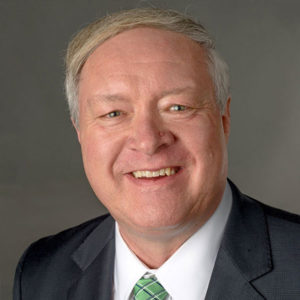 Dr. Duane Nellis has had an outstanding career as a leader in remote sensing in geography, and through his positions as leaders of major universities across the United States. Nellis forged an impressive career as a geographer and as a senior administrator at several public research universities. He has published numerous papers in the field of geography and remote sensing, and he has guided the continual growth of this field serving in his long-standing role as co-editor of Geocarto International. He has carried out this editorial work in addition to his university leadership roles as dean of arts and sciences (West Virginia University), provost (Kansas State University), and president (University of Idaho, Texas Tech, and Ohio University). In all these roles, Nellis crafted creative, joint-venture opportunities between the university and external foundations and corporations, shifting the narrative of public universities being victims of defunding to empowered agents of their own destinies. He also used his bully pulpit to advance diversity, equity, and inclusion efforts at every university in which he served. One powerful example of his efforts was the designation of Texas Tech University as a Hispanic-Serving Institution. Nellis also served the AAG through his efforts in the Remote Sensing Specialty Group, and especially through his terms as Vice-President, President, and Past President of the AAG. He received many awards and commendations over the course of his distinguished career, and has richly deserved all the recognition. He received the Gilbert Grosvenor Geographic Education Honors in 2001 for his distinguished contributions to geographic education. He also received the highest-level scholarly achievement award from the AAG Remote Sensing Specialty Group and the John Fraser Hart Award for Distinguished Scholarship from the Agriculture and Rural Land Use Specialty Group.
Dr. Duane Nellis has had an outstanding career as a leader in remote sensing in geography, and through his positions as leaders of major universities across the United States. Nellis forged an impressive career as a geographer and as a senior administrator at several public research universities. He has published numerous papers in the field of geography and remote sensing, and he has guided the continual growth of this field serving in his long-standing role as co-editor of Geocarto International. He has carried out this editorial work in addition to his university leadership roles as dean of arts and sciences (West Virginia University), provost (Kansas State University), and president (University of Idaho, Texas Tech, and Ohio University). In all these roles, Nellis crafted creative, joint-venture opportunities between the university and external foundations and corporations, shifting the narrative of public universities being victims of defunding to empowered agents of their own destinies. He also used his bully pulpit to advance diversity, equity, and inclusion efforts at every university in which he served. One powerful example of his efforts was the designation of Texas Tech University as a Hispanic-Serving Institution. Nellis also served the AAG through his efforts in the Remote Sensing Specialty Group, and especially through his terms as Vice-President, President, and Past President of the AAG. He received many awards and commendations over the course of his distinguished career, and has richly deserved all the recognition. He received the Gilbert Grosvenor Geographic Education Honors in 2001 for his distinguished contributions to geographic education. He also received the highest-level scholarly achievement award from the AAG Remote Sensing Specialty Group and the John Fraser Hart Award for Distinguished Scholarship from the Agriculture and Rural Land Use Specialty Group. Dr. Bimal K. Paul, a Fulbright-Flex Fellow, has an international reputation as a leading scholar on disasters, hazards, and health and is known for frequently offering deeper understandings of complex issues and debunking long-held myths. Stanford University identified him as among the top two percent of researchers in the world. His research expertise is not just evidenced by his long record of publications, which includes numerous articles and several books, but also by his selection as a member of the observer team at the United Nations Climate Change Conference in Lima, Peru, and more recently the Paris Climate Change Conference. Dr. Paul’s work is well-known and respected beyond North America, as proven by numerous invited talks in various Asian countries as well as his service as the external reviewer on 20 dissertations at foreign universities. Dr. Paul is recognized as an expert on South Asia both within and outside academia and is frequently interviewed by the media on a wide range of topics including natural disaster mitigation, disaster relief, and health. Dr. Paul has served the AAG in a variety of capacities, including leadership of the Asian Geography Specialty Group, the AAG Affirmative Action and Minority Status Committee, and the AAG Research Grants Committee. He has also held editorial positions for the
Dr. Bimal K. Paul, a Fulbright-Flex Fellow, has an international reputation as a leading scholar on disasters, hazards, and health and is known for frequently offering deeper understandings of complex issues and debunking long-held myths. Stanford University identified him as among the top two percent of researchers in the world. His research expertise is not just evidenced by his long record of publications, which includes numerous articles and several books, but also by his selection as a member of the observer team at the United Nations Climate Change Conference in Lima, Peru, and more recently the Paris Climate Change Conference. Dr. Paul’s work is well-known and respected beyond North America, as proven by numerous invited talks in various Asian countries as well as his service as the external reviewer on 20 dissertations at foreign universities. Dr. Paul is recognized as an expert on South Asia both within and outside academia and is frequently interviewed by the media on a wide range of topics including natural disaster mitigation, disaster relief, and health. Dr. Paul has served the AAG in a variety of capacities, including leadership of the Asian Geography Specialty Group, the AAG Affirmative Action and Minority Status Committee, and the AAG Research Grants Committee. He has also held editorial positions for the 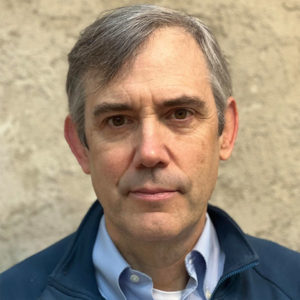 Dr. William Solecki is an internationally recognized geographer whose research has significantly advanced understanding of urban environmental change and transitions to adaptation and resilience in the face of a changing climate. Among Dr. Solecki’s sustained, high-impact contributions are his leadership roles in climate assessments at the international and national levels. For the Intergovernmental Panel on Climate Change (IPCC) since 2006, he has served as contributing lead author, lead author, or contributing author for chapters in the 4th Assessment, 5th Assessment, and 6th Assessment reports. Solecki was also a lead author for “Chapter 1 Framing and Contexts” of the IPCC Special Report: Global Warming of 1.5°C. He was also a lead author for U.S. National Climate Assessment chapter reports, most recently for a chapter on the Northeast (AR4). Infusing geographical concepts, and transcending academic scholarship to co-involve policymakers and practitioners, are significant attributes of Dr. Solecki’s work. His engagement with climate change issues in New York City has provided a living laboratory for his research and teaching at Hunter College, City University of New York (CUNY). He was the co-Chair of the New York City Panel on Climate Change, founding director of the Institute for Sustainable Cities at Hunter College, founding (interim) director of the CUNY-led, Science and Resilience Institute at Jamaica Bay, co-founder of the Urban Climate Change Research Network, and founding editor of the
Dr. William Solecki is an internationally recognized geographer whose research has significantly advanced understanding of urban environmental change and transitions to adaptation and resilience in the face of a changing climate. Among Dr. Solecki’s sustained, high-impact contributions are his leadership roles in climate assessments at the international and national levels. For the Intergovernmental Panel on Climate Change (IPCC) since 2006, he has served as contributing lead author, lead author, or contributing author for chapters in the 4th Assessment, 5th Assessment, and 6th Assessment reports. Solecki was also a lead author for “Chapter 1 Framing and Contexts” of the IPCC Special Report: Global Warming of 1.5°C. He was also a lead author for U.S. National Climate Assessment chapter reports, most recently for a chapter on the Northeast (AR4). Infusing geographical concepts, and transcending academic scholarship to co-involve policymakers and practitioners, are significant attributes of Dr. Solecki’s work. His engagement with climate change issues in New York City has provided a living laboratory for his research and teaching at Hunter College, City University of New York (CUNY). He was the co-Chair of the New York City Panel on Climate Change, founding director of the Institute for Sustainable Cities at Hunter College, founding (interim) director of the CUNY-led, Science and Resilience Institute at Jamaica Bay, co-founder of the Urban Climate Change Research Network, and founding editor of the  Dr. David Wilson is a distinguished urban geographer who has led the excellent urban geography program at the University of Illinois at Urbana-Champaign for 30 years. His research has focused on urban redevelopment, political economy, governance dynamics, and race in Rust Belt Cities of the global north, particularly in Chicago, Flint, Glasgow, and Cleveland. He both studies these cities and has become closely tied to them, particularly their Blues music scene. Dr. Wilson also excels as a mentor, both for urban geography students and for junior faculty. He is a giving scholar, with an open-door policy for all. He is also devoted to the promotion of diversity and inclusion at the University of Illinois and in the field of geography in general. In the AAG, he has been a leader in the Urban Geography Specialty Group, where he co-organizes the annual plenary lecture. He has also been on the editorial board of more than 10 national and international journals.
Dr. David Wilson is a distinguished urban geographer who has led the excellent urban geography program at the University of Illinois at Urbana-Champaign for 30 years. His research has focused on urban redevelopment, political economy, governance dynamics, and race in Rust Belt Cities of the global north, particularly in Chicago, Flint, Glasgow, and Cleveland. He both studies these cities and has become closely tied to them, particularly their Blues music scene. Dr. Wilson also excels as a mentor, both for urban geography students and for junior faculty. He is a giving scholar, with an open-door policy for all. He is also devoted to the promotion of diversity and inclusion at the University of Illinois and in the field of geography in general. In the AAG, he has been a leader in the Urban Geography Specialty Group, where he co-organizes the annual plenary lecture. He has also been on the editorial board of more than 10 national and international journals.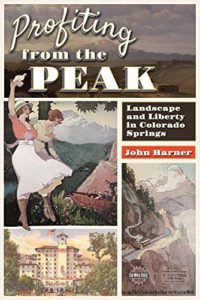 John Harner,
John Harner, 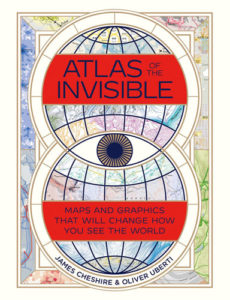 James Cheshire and Oliver Uberti,
James Cheshire and Oliver Uberti, 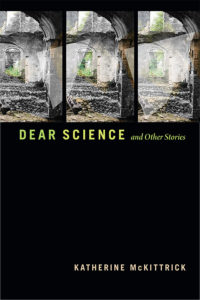 Katherine McKittrick
Katherine McKittrick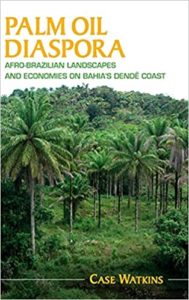 Case Watkins
Case Watkins Kimberley Kinder,
Kimberley Kinder, 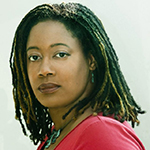
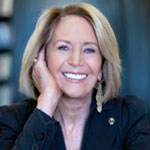 Geophysicist Marcia McNutt,
Geophysicist Marcia McNutt,